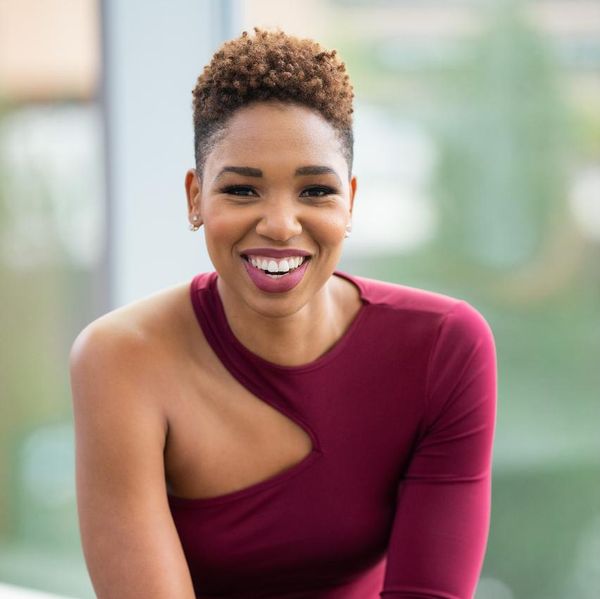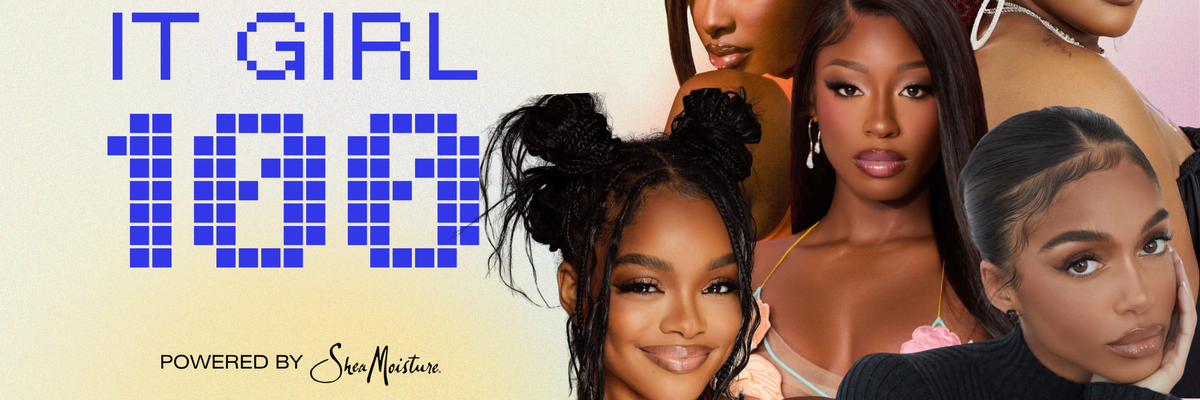
In xoNecole's Finding Balance, we profile boss women making boss moves in the world and in their respective industries. We talk to them about their business, and most of all, what they do to find balance in their busy lives.
As the summer comes to an end, we must welcome the time for change. Say goodbye to summer and hello to cooler weather! And we know what that means ladies: We have to switch up our fashion trends, how we wear our hair, and even our skincare routines. When it comes to skincare, we as Black queens have to make sure our products are on point for all the seasons. It is crucial for us to protect our blessed and melanated beauty.
You would think with the amount of trends and dollars being put behind beauty brands, that there would be better representation in the medical field to help us understand our skin better from the jump. Unfortunately, Black physicians only make up 5% of the physician population, and if we want to talk about Black dermatologists specifically, well that number is even lower.
Recently, I interviewed Brianna Olamiju, a resident doctor who graduated this past May and is joining that 3% helping to keep all shades of our skin healthy and poppin'. Brianna's interest in medicine began during childhood. She wondered why few doctors looked like her. As a college student, she majored in race and ethnicity studies at Columbia University in New York City and went on to attend medical school at Yale University. Now that she's in a new chapter in her journey, Brianna is focusing on balancing her personal as well as her professional life.
"Before I am a physician, I am a friend, a daughter, and a mentor. While I love being a doctor, those are the titles I cherish the most."
Representation is so important for our community, in all industries. We must receive the best care from our doctors, especially those who look like us. In this installment of Finding Balance, we talked to Brianna about being a Black woman in medicine, setting personal goals, and the importance of your own self-care survival kit.
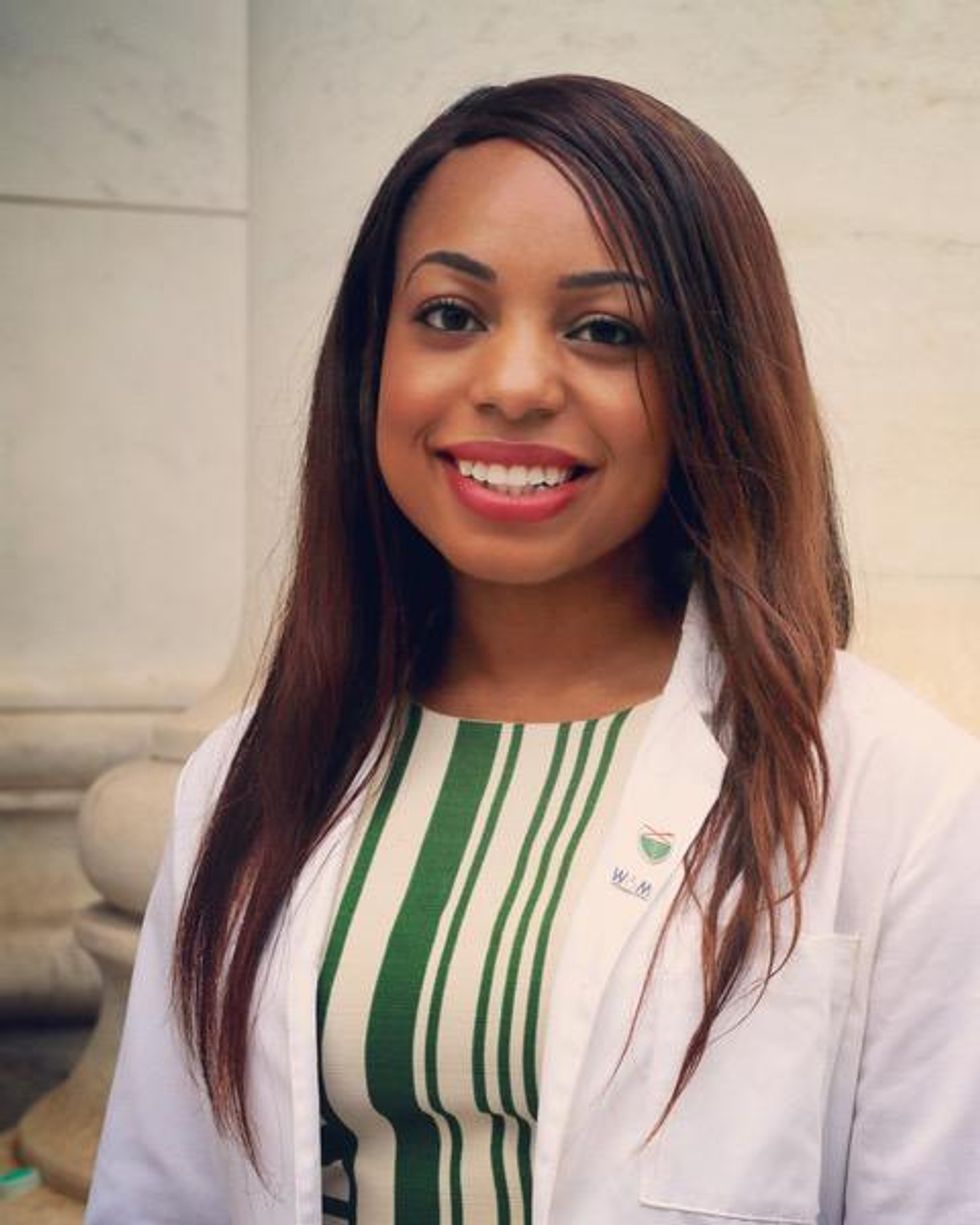
Courtesy of Brianna Olamiju
What is your WHY?
Brianna: Each and every day, I go to work to serve my patients. I know there are a lot of patients in need and I see the joy on some of their faces when I walk in the room and they see a Black doctor. My goal as a Black doctor is to help decrease healthcare disparities. I didn't see a lot of Black doctors growing up, so I aspire to be someone younger girls can look up to if they want to pursue the medical field as well.
At what point in your life did you understand the importance of pressing pause and finding balance in both your personal and professional life?
So, as you can probably guess, medical school is very demanding. There were times where I would question myself about how badly I really wanted this. I remember studying for my first board exam for three months and it would take 8 to 10 hours each day. I would find myself feeling really sad and anxious during that time. Then, I realized I had to take a step back and start taking better care of myself. So I started reconnecting with my family and friends and added working out more into my routine to feel more balanced.
What did a typical week in medical school look like for you?
In medical school, each year is different. In my last year of my medical school, I did a research year, so I was studying dermatological conditions on [minority] patients. I would visit different patients and learn their stories of what they were experiencing. There were also times when I would run data stats to see what treatment options are best for patients to help their skin.
How do you wind down at night?
I usually try to go to a gym class because it gives me the structure that I need. In the gym, I've also been able to find community. The gym has really helped me let go of the day and get ready for the next one.
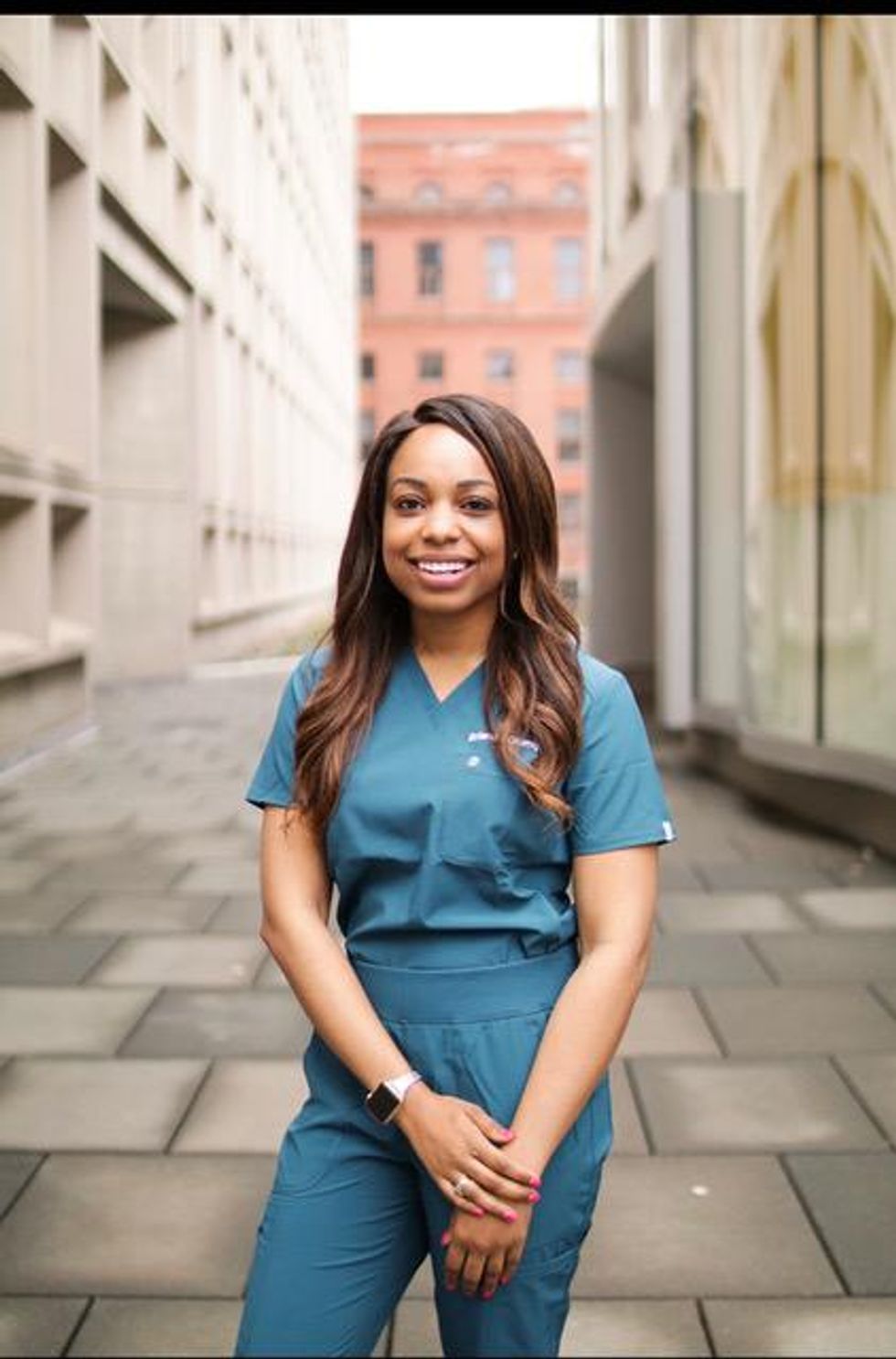
Courtesy of Brianna Olamiju
What advice would you give other Black women who are looking to pursue medical school?
Medical school can be hard for anyone, but [going to] medical school and being a Black woman can make things tougher. You are going to experience microaggressions and it's important to assert yourself to remind people that you belong there. We are needed in the field so you must push through, ignore the naysayers, and remember your why.
What would you say is your favorite self-care practice and why?
After a long busy day, I like to give myself quiet time. I like to reflect on the day and I like to reaffirm myself. Being the only Black woman can really negatively affect your self-confidence so I love meditation and my quiet time. I have so many thoughts swirling in my head all day, so during that quiet time, I am able to process my thoughts better. After being by myself away from the noise, I feel recharged and ready to take on anything.
What advice do you have for busy women who feel like they don’t have time for self-care?
To-do lists have been so key for me. Ever since college, I have been using to-do lists to help keep me on track. Checking off something from your list is a really good feeling, too. Another thing that I encourage women to do is to just say "no." While a lot of people want to get a "yes," saying "no" is a form of self-preservation. Saying "yes" all the time to different people can get so draining. So once you learn to say "no," it makes you feel better and it is the best boundary you can create for yourself in order to really prioritize self-care.
"I encourage women to do is to just say 'no.' While a lot of people want to get a 'yes,' saying 'no' is a form of self-preservation. Once you learn to say 'no,' it makes you feel better and it is the best boundary you can create for yourself in order to really prioritize self-care."
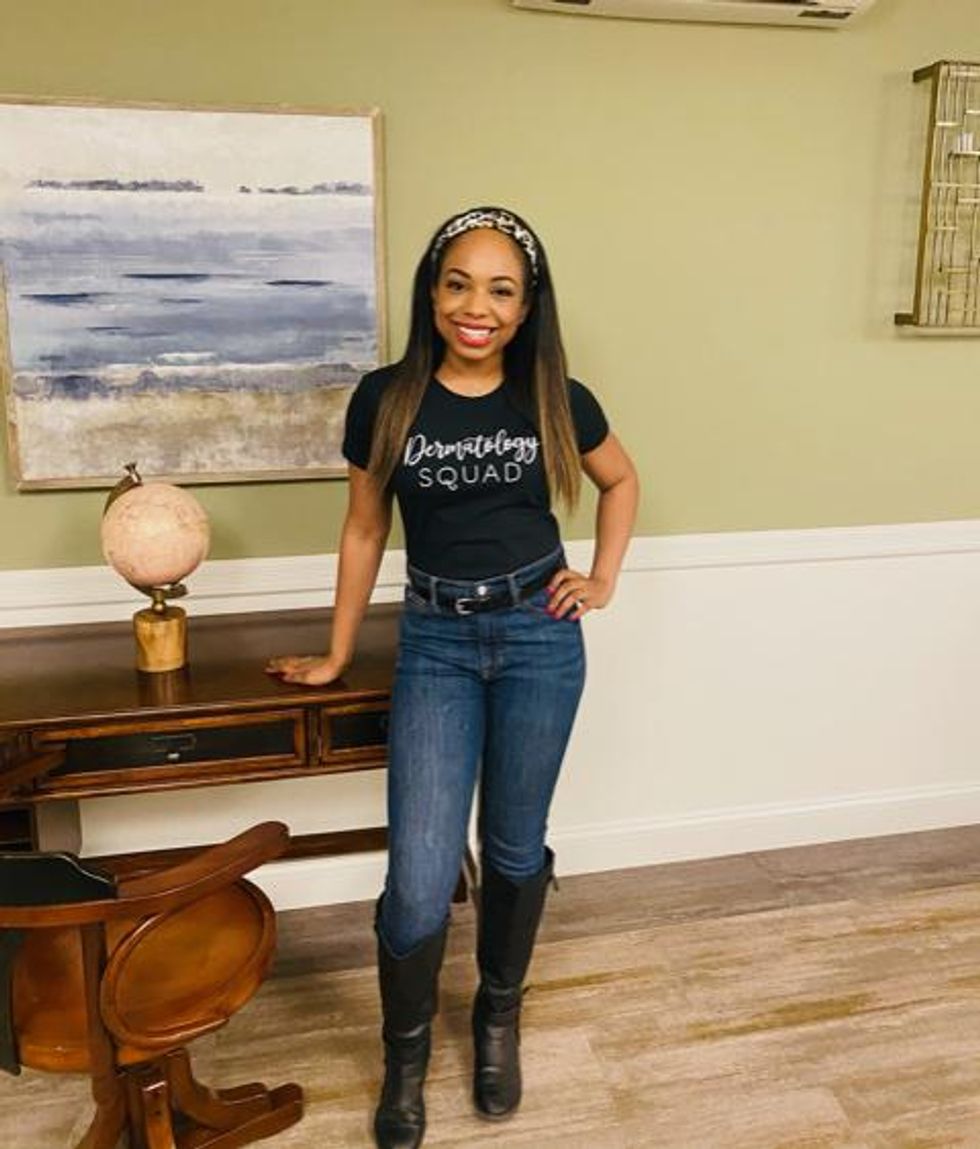
Courtesy of Brianna Olamiju
When you are going through a bout of uncertainty or feeling stuck, how do you handle it?
I usually like to lean in on my people or my family for advice and get their feedback. But more importantly, I pray when I am feeling anxious and focus on calming my mind, whether that is [by] listening to some smooth R&B or meditative sounds.
What are some lessons about unhealthy habits you learned from in medical school that you apply as a full-time dermatologist?
I've learned that less is more. It is better to be involved in a few activities and completely immerse yourself in them rather than being in too many activities and spreading yourself thin. In the beginning, I thought it would look good on my resume to be involved in a lot of things to impress people, but I learned from my mentors that it is better to be deeper in a small number of activities than shallow in many activities. So when trying to balance it all, I'll make sure I have enough on my plate where I still have room to just breathe.
If you could create your own self-survival kit, what would be the top three self-care items you'd list?
On this list would be another list and that is my to-do list (laughs). The next thing on my list would be a reminder to get seven hours of sleep a night. Sleep is everything for me. My third item is my skincare routine. As a dermatologist, you know I have to add that in there, as cheesy as it may sound!
What does success mean to you vs happiness?
I consider success to be building your career and reaching those personal milestones—when you're really making sure you're growing every single day. For happiness, happiness is being at peace with yourself. You feel comfort with yourself, your future, and surrounding yourself with the people you love the most.
For more about Brianna, follow her on Instagram @brianna_med.
Learn more about Brianna by following her on Instagram @brianna_med.
Featured image courtesy of Brianna Olamiju
Because We Are Still IT, Girl: It Girl 100 Returns
Last year, when our xoNecole team dropped our inaugural It Girl 100 honoree list, the world felt, ahem, a bit brighter.
It was March 2024, and we still had a Black woman as the Vice President of the United States. DEI rollbacks weren’t being tossed around like confetti. And more than 300,000 Black women were still gainfully employed in the workforce.
Though that was just nineteen months ago, things were different. Perhaps the world then felt more receptive to our light as Black women.
At the time, we launched It Girl 100 to spotlight the huge motion we were making as dope, GenZennial Black women leaving our mark on culture. The girls were on the rise, flourishing, drinking their water, minding their business, leading companies, and learning to do it all softly, in rest. We wanted to celebrate that momentum—because we love that for us.
So, we handpicked one hundred It Girls who embody that palpable It Factor moving through us as young Black women, the kind of motion lighting up the world both IRL and across the internet.
It Girl 100 became xoNecole’s most successful program, with the hashtag organically reaching more than forty million impressions on Instagram in just twenty-four hours. Yes, it caught on like wildfire because we celebrated some of the most brilliant and influential GenZennial women of color setting trends and shaping culture. But more than that, it resonated because the women we celebrated felt seen.
Many were already known in their industries for keeping this generation fly and lit, but rarely received recognition or flowers. It Girl 100 became a safe space to be uplifted, and for us as Black women to bask in what felt like an era of our brilliance, beauty, and boundless influence on full display.
And then, almost overnight, it was as if the rug was pulled from under us as Black women, as the It Girls of the world.
Our much-needed, much-deserved season of ease and soft living quickly metamorphosed into a time of self-preservation and survival. Our motion and economic progression seemed strategically slowed, our light under siege.
The air feels heavier now. The headlines colder. Our Black girl magic is being picked apart and politicized for simply existing.
With that climate shift, as we prepare to launch our second annual It Girl 100 honoree list, our team has had to dig deep on the purpose and intention behind this year’s list. Knowing the spirit of It Girl 100 is about motion, sauce, strides, and progression, how do we celebrate amid uncertainty and collective grief when the juice feels like it is being squeezed out of us?
As we wrestled with that question, we were reminded that this tension isn’t new. Black women have always had to find joy in the midst of struggle, to create light even in the darkest corners. We have carried the weight of scrutiny for generations, expected to be strong, to serve, to smile through the sting. But this moment feels different. It feels deeply personal.
We are living at the intersection of liberation and backlash. We are learning to take off our capes, to say no when we are tired, to embrace softness without apology.
And somehow, the world has found new ways to punish us for it.

In lifestyle, women like Kayla Nicole and Ayesha Curry have been ridiculed for daring to choose themselves. Tracee Ellis Ross was labeled bitter for speaking her truth about love. Meghan Markle, still, cannot breathe without critique.
In politics, Kamala Harris, Letitia James, and Jasmine Crockett are dragged through the mud for standing tall in rooms not built for them.
In sports, Angel Reese, Coco Gauff, and Taylor Townsend have been reminded that even excellence will not shield you from racism or judgment.

In business, visionaries like Diarrha N’Diaye-Mbaye and Melissa Butler are fighting to keep their dreams alive in an economy that too often forgets us first.
Even our icons, Beyoncé, Serena, and SZA, have faced criticism simply for evolving beyond the boxes society tried to keep them in.
From everyday women to cultural phenoms, the pattern is the same. Our light is being tested.

And yet, somehow, through it all, we are still showing up as that girl, and that deserves to be celebrated.
Because while the world debates our worth, we keep raising our value. And that proof is all around us.
This year alone, Naomi Osaka returned from motherhood and mental health challenges to reach the semifinals of the US Open. A’ja Wilson claimed another MVP, reminding us that beauty and dominance can coexist. Brandy and Monica are snatching our edges on tour. Kahlana Barfield Brown sold out her new line in the face of a retailer that had been canceled. And Melissa Butler’s company, The Lip Bar, is projecting a forty percent surge in sales.

We are no longer defining strength by how much pain we can endure. We are defining it by the unbreakable light we continue to radiate.
We are the women walking our daily steps and also continuing to run solid businesses. We are growing in love, taking solo trips, laughing until it hurts, raising babies and ideas, drinking our green juice, and praying our peace back into existence.
We are rediscovering the joy of rest and realizing that softness is not weakness, it is strategy.
And through it all, we continue to lift one another. Emma Grede is creating seats at the table. Valeisha Butterfield has started a fund for jobless Black women. Arian Simone is leading in media with fearless conviction. We are pouring into each other in ways the world rarely sees but always feels.

So yes, we are in the midst of societal warfare. Yes, we are being tested. Yes, we are facing economic strain, political targeting, and public scrutiny. But even war cannot dim a light that is divinely ours.
And we are still shining.
And we are still softening.
And we are still creating.
And we are still It.

That is the quiet magic of Black womanhood, our ability to hold both truth and triumph in the same breath, to say yes, and to life’s contradictions.
It is no coincidence that this year, as SheaMoisture embraces the message “Yes, And,” they stand beside us as partners in celebrating this class of It Girls. Because that phrase, those two simple words, capture the very essence of this moment.
Yes, we are tired. And we are still rising.
Yes, we are questioned. And we are the answer.
Yes, we are bruised. And we are still beautiful.

This year’s It Girl 100 is more than a list. It is a love letter to every Black woman who dares to live out loud in a world that would rather she whisper. This year’s class is living proof of “Yes, And,” women who are finding ways to thrive and to heal, to build and to rest, to lead and to love, all at once.
It is proof that our joy is not naive, our success not accidental. It is the reminder that our light has never needed permission.
So without further ado, we celebrate the It Girl 100 Class of 2025–2026.
We celebrate the millions of us who keep doing it with grace, grit, and glory.
Because despite it all, we still shine.
Because we are still her.
Because we are still IT, girl.
Meet all 100 women shaping culture in the It Girl 100 Class of 2025. View the complete list of honorees here.
Featured image by xoStaff
The It Girl 100 Class Of 2025: Meet The Culture & Entertainment Shapeshifters You Need To Know
Culture shifts when she moves, and this year’s It Girls have the whole world collectively hitting refresh.
You see, the Culture & Entertainment It Girls don’t just become the moment, they shape it. Whether she’s redefining Young Hollywood, bending genres across the board, or turning a casual drop into cultural canon, her presence transcends timeline, group chats, and red carpets alike. This It Girl is the kind of woman whose name travels, from screens to stages to every corner of the zeitgeist.
This year's It Girl 100 is a mosaic of brilliance, spotlighting media personalities, cultural disruptors, beauty visionaries, and boundary-pushing prodigies who embody the spirit of "Yes, And." This digital celebration honors the women who embrace every facet of themselves, proving you can be a light and still honor your desire to glow at your own pace.
The women repping for the Culture & Entertainment category prove relevance is crafted, not accidental. It's the alchemy of talent, intention, and magnetism that becomes the spark.
Here's the roll call for xoNecole's It Girl 100 Class of 2025: Culture & Entertainment.
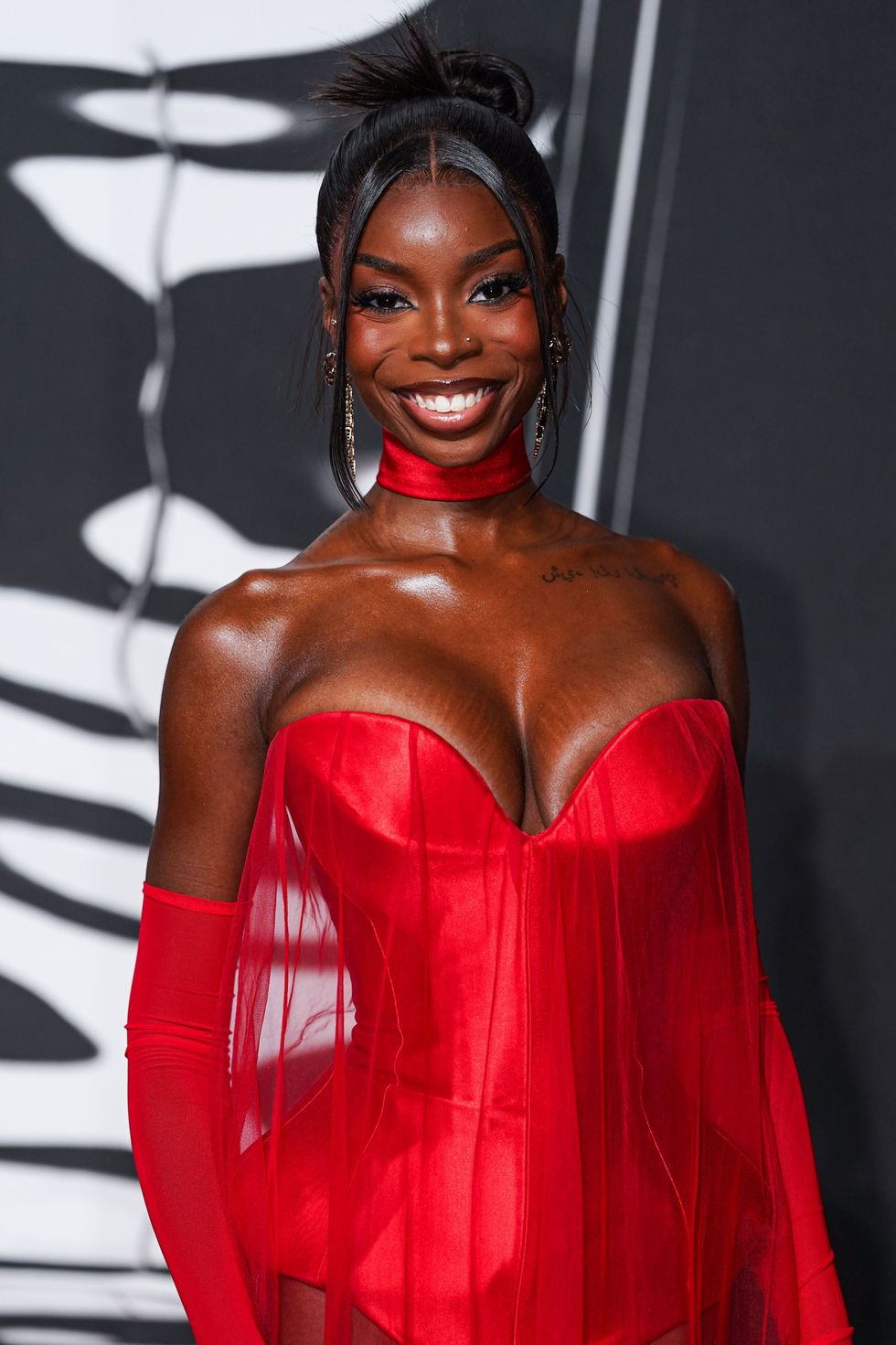
Model and Media Personality Olandria Carthen
Shutterstock
Olandria Carthen
Her Handle: @x_olandria
Her Title: Model and Media Personality
Who's That It Girl: Olandria Carthen is lighting up the entertainment space with creativity and confidence. We love her for carving out a name rooted in self-belief and for using her artistry to uplift and inspire.
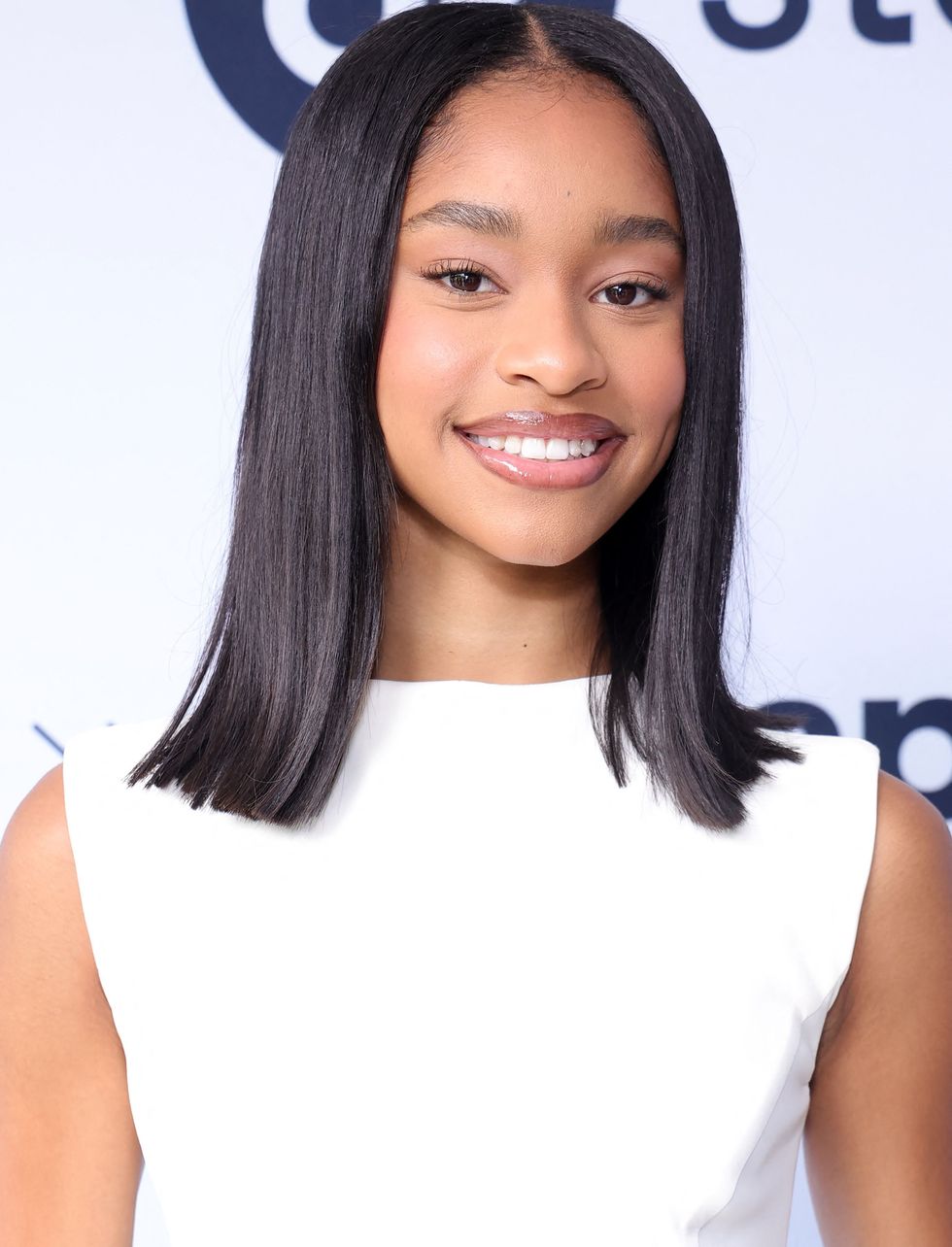
Actress Akira Akbar
Shutterstock
Akira Akbar
Her Handle: @akira_akbar
Her Title: Actress
Who's That It Girl: Bright, fearless, and full of heart, Akira Akbar is redefining what young Hollywood looks like. We honor her for bringing depth and authenticity to every role and for reminding the world that talent has no age limit.
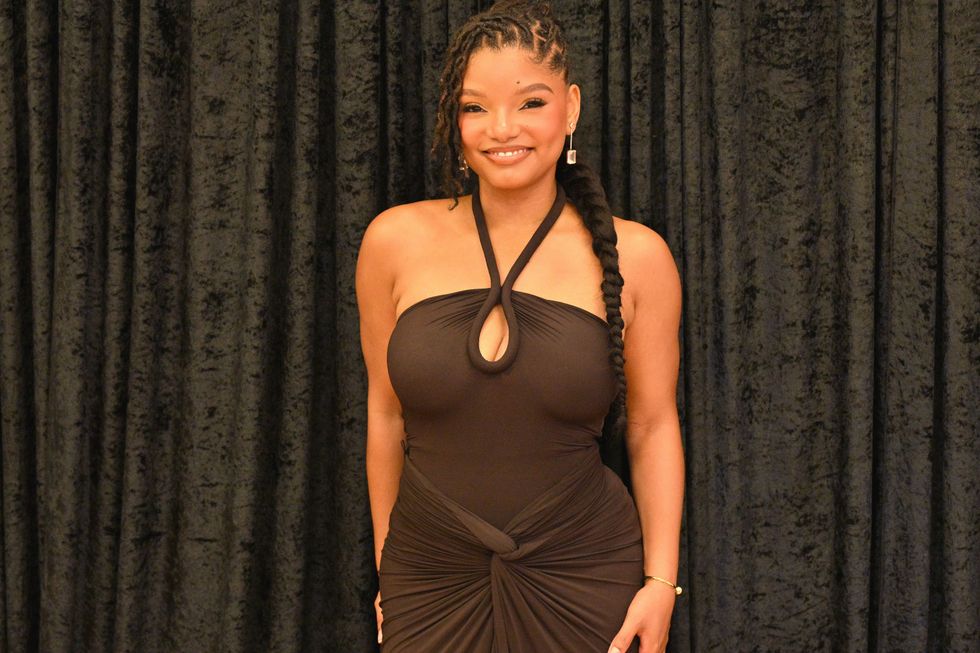
Singer, Songwriter and Actress Halle Bailey
Shutterstock
Halle Bailey
Her Handle: @hallebailey
Her Title: Singer, Songwriter and Actress
Who's That It Girl: Halle Bailey is ethereal strength in motion. We love her for redefining princesshood, representation, and the power of visibility, inspiring young dreamers to believe their voices belong on every stage.
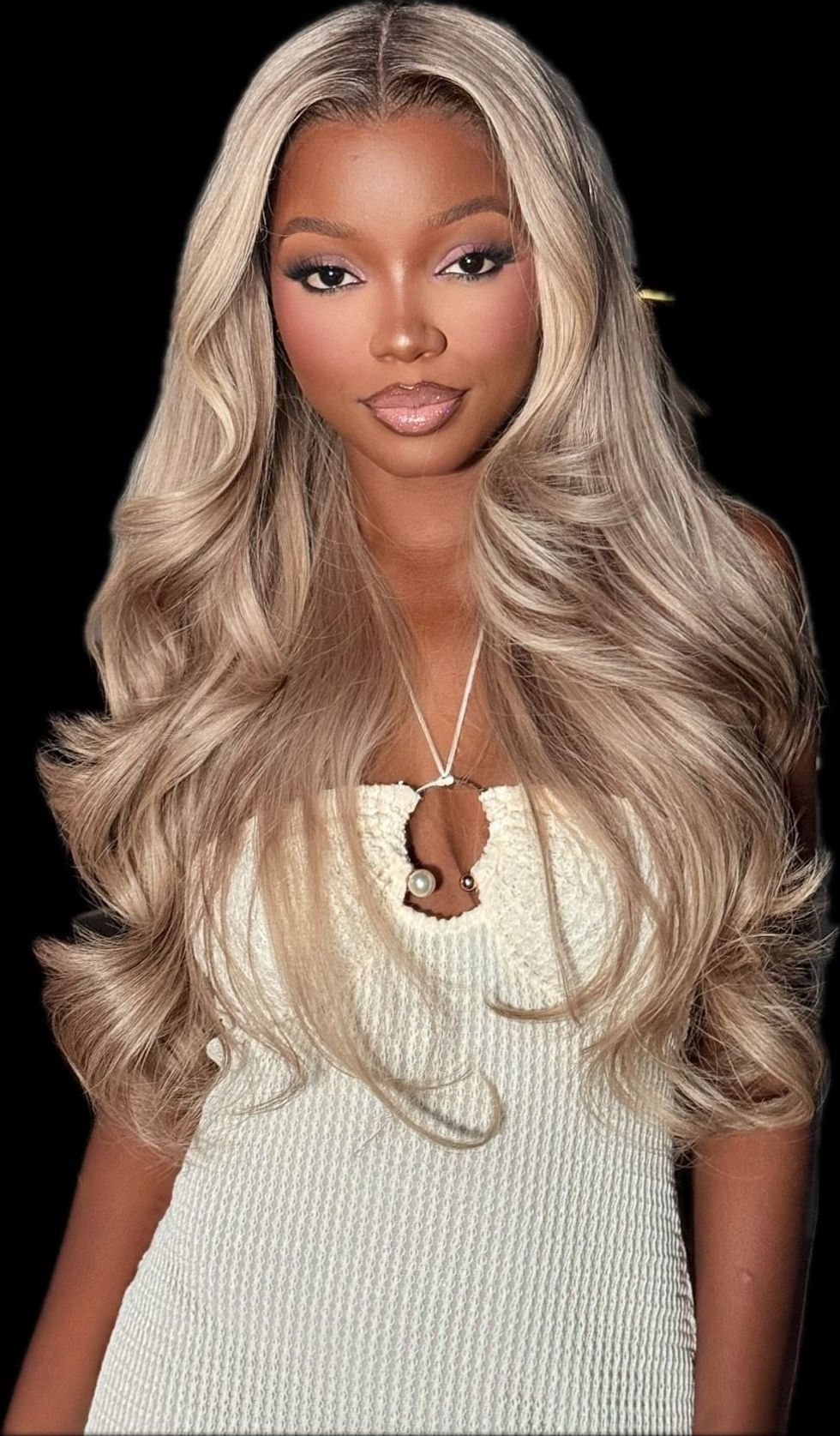
Entrepreneur, Model, Actress, and Cultural Voice Chelley Bissanthe
Courtesy
Chelley Bissanthe
Her Handle: @_slimthin
Her Title: Entrepreneur, Model, Actress, and Cultural Voice
Who's That It Girl: Chelley Bissainthe is a Haitian-American model, entrepreneur, and advocate. She uses her platform to uplift communities, honor her Caribbean heritage, and build pathways to ownership and legacy.
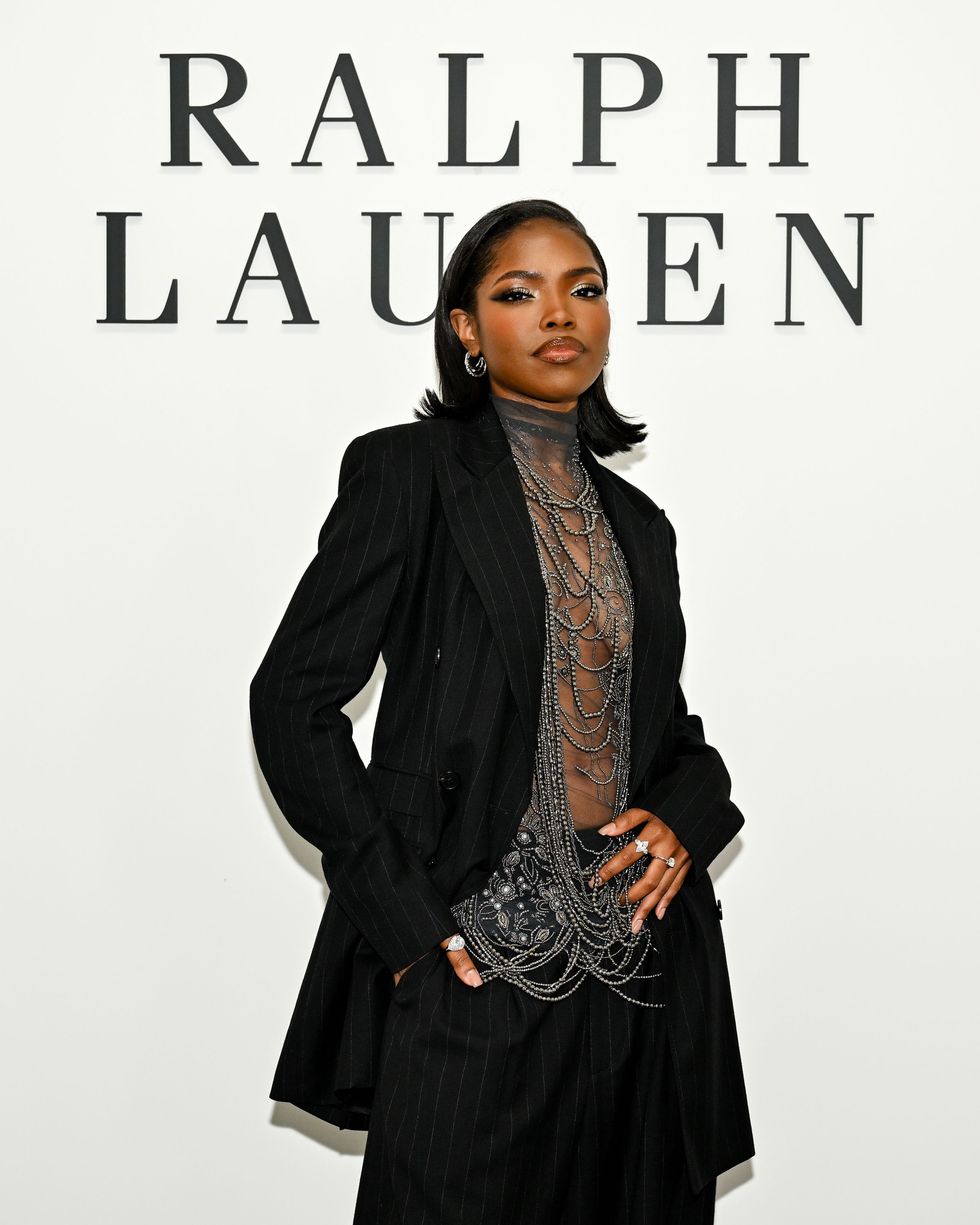
Actress and Singer Ryan Destiny
Shutterstock
Ryan Destiny
Her Handle: @ryandestiny
Her Title: Actress and Singer
Who's That It Girl: Ryan Destiny embodies star power and stillness in one. We celebrate her for her poise, range, and unshakable confidence, proof that quiet strength can shine just as bright as any spotlight.
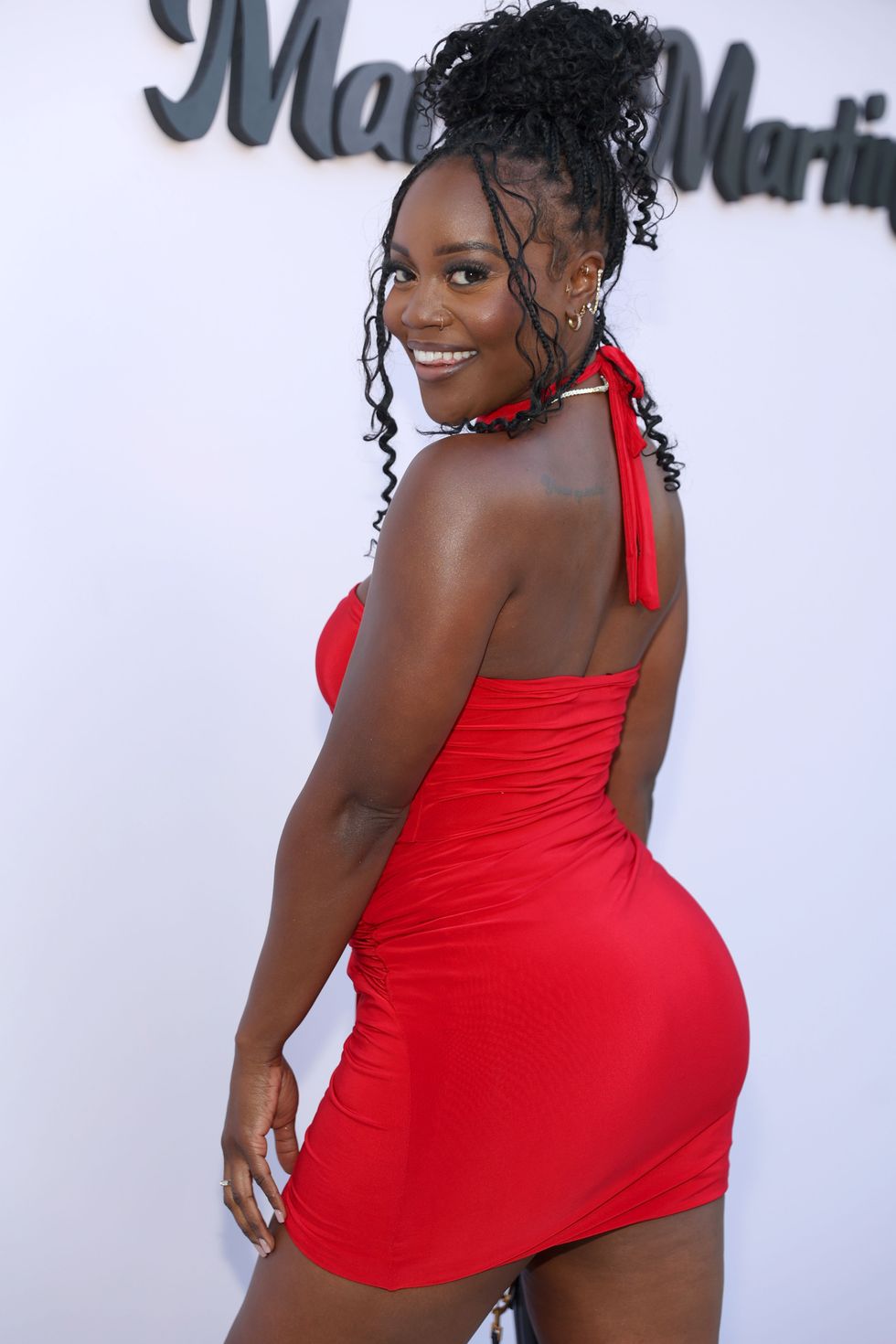
Reality TV Personality and Influencer Amber Desiree (AD)
Shutterstock
Amber Desiree (AD)
Her Handle: @amberdesiree
Her Title: Reality TV Personality and Influencer
Who's That It Girl: Charismatic and bold, Amber Desiree brings emotional depth and vibrant storytelling to every project she touches. We love her for representing multifaceted womanhood on screen and off, inspiring a generation of creatives to lead with authenticity.
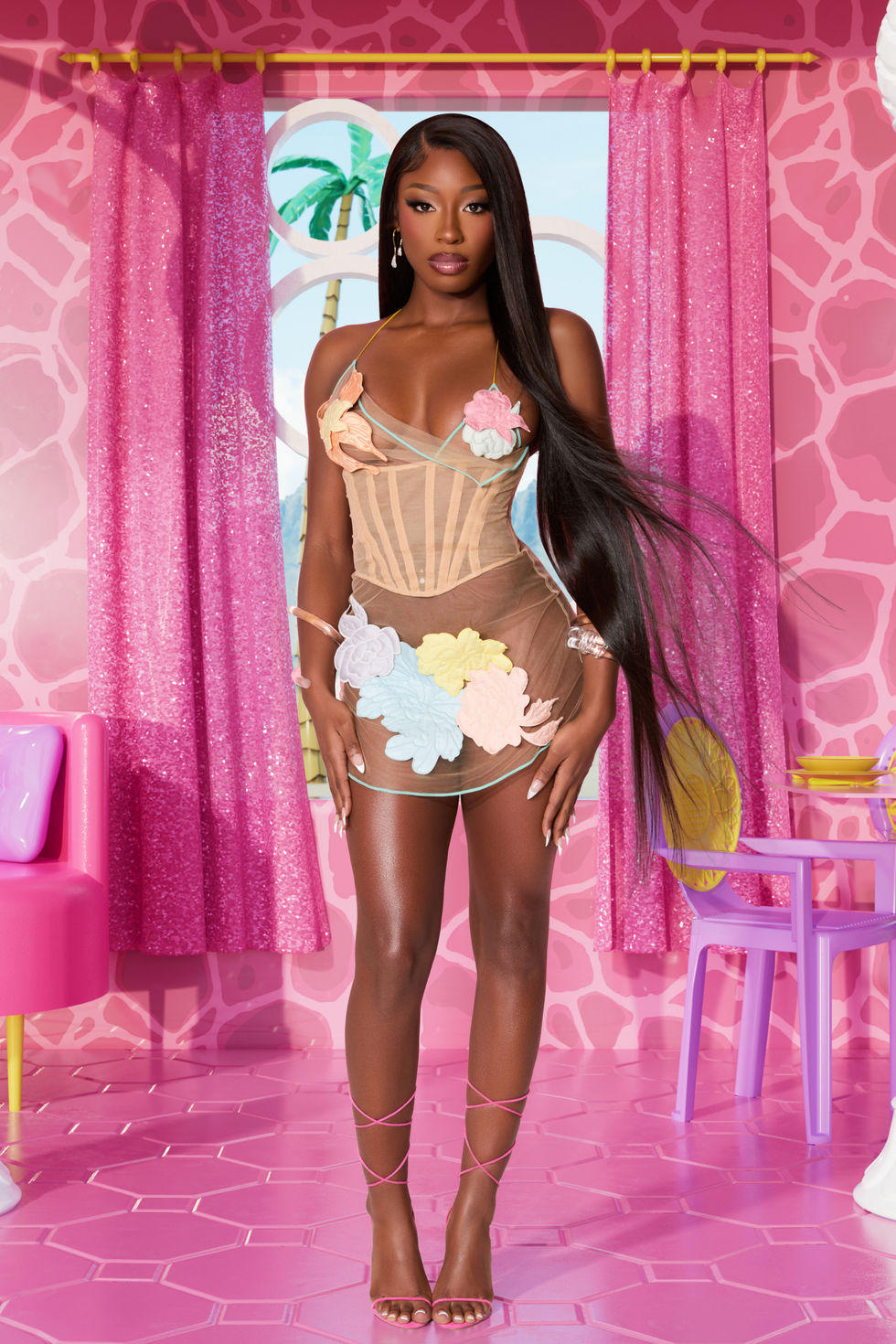
Top Creator, Model, Media Personality and Cultural Tastemaker Serena Page
Credit: Jacob Webster
Serena Page
Her Handle: @serenaapagee
Her Title: Top Creator, Model, Media Personality and Cultural Tastemaker
Who's That It Girl: Serena Page first captured hearts on Love Island USA Season 6 and has since become one of pop culture’s favorite “it girls.” Her confidence and authenticity have made her a go-to face for brands like SheaMoisture, Pepsi, and CeraVe.
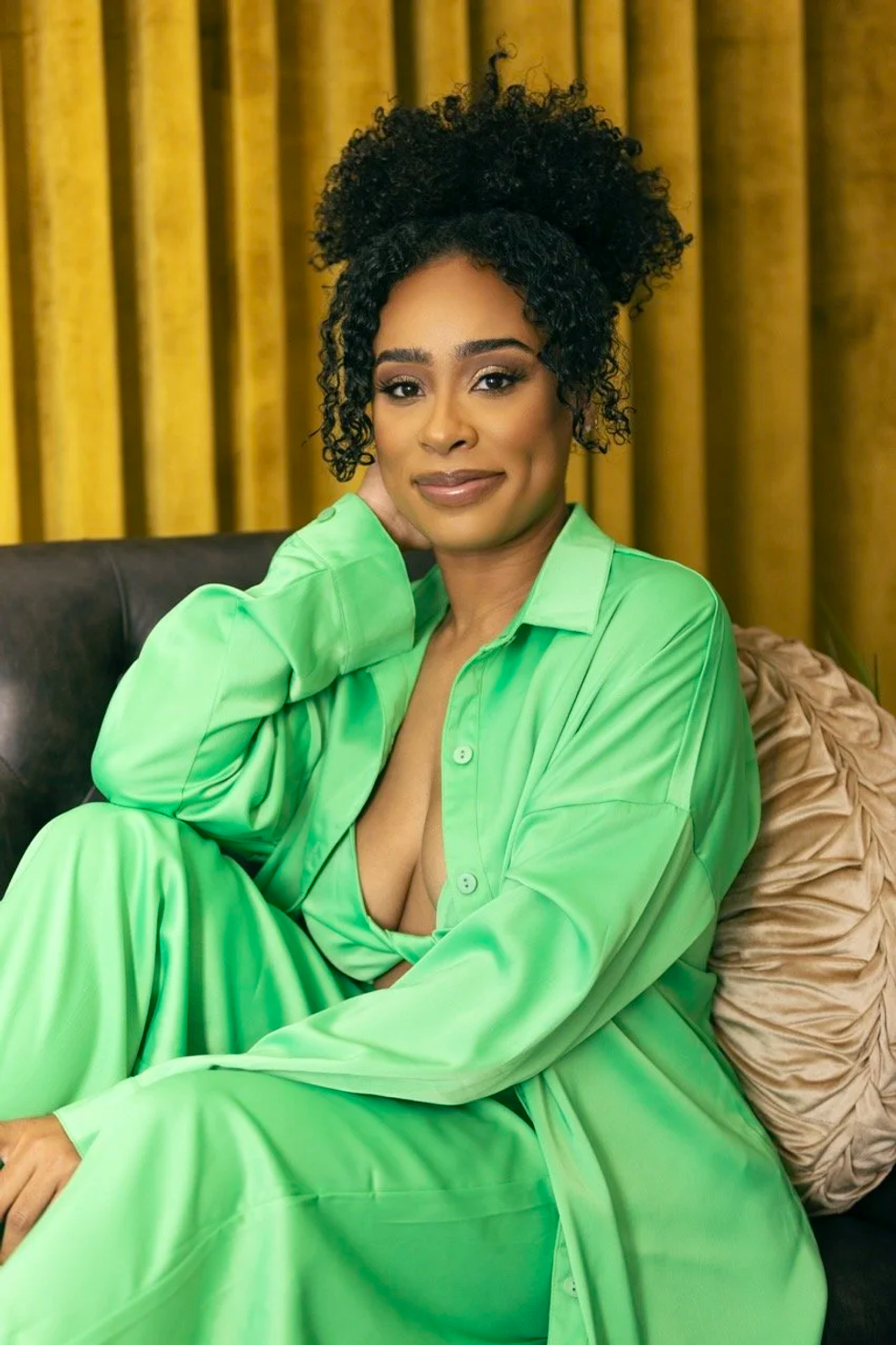
Director and Executive Producer Courtney Whitaker
Courtesy
Courtney Whitaker
Her Handle: @courtneyewhitaker
Her Title: Director and Executive Producer
Who's That It Girl: Courtney Whitaker is a two-time Emmy-winning producer and director specializing in TV, documentaries, and branded content. With over 20 projects completed, she's dedicated to amplifying underrepresented voices through impactful storytelling.
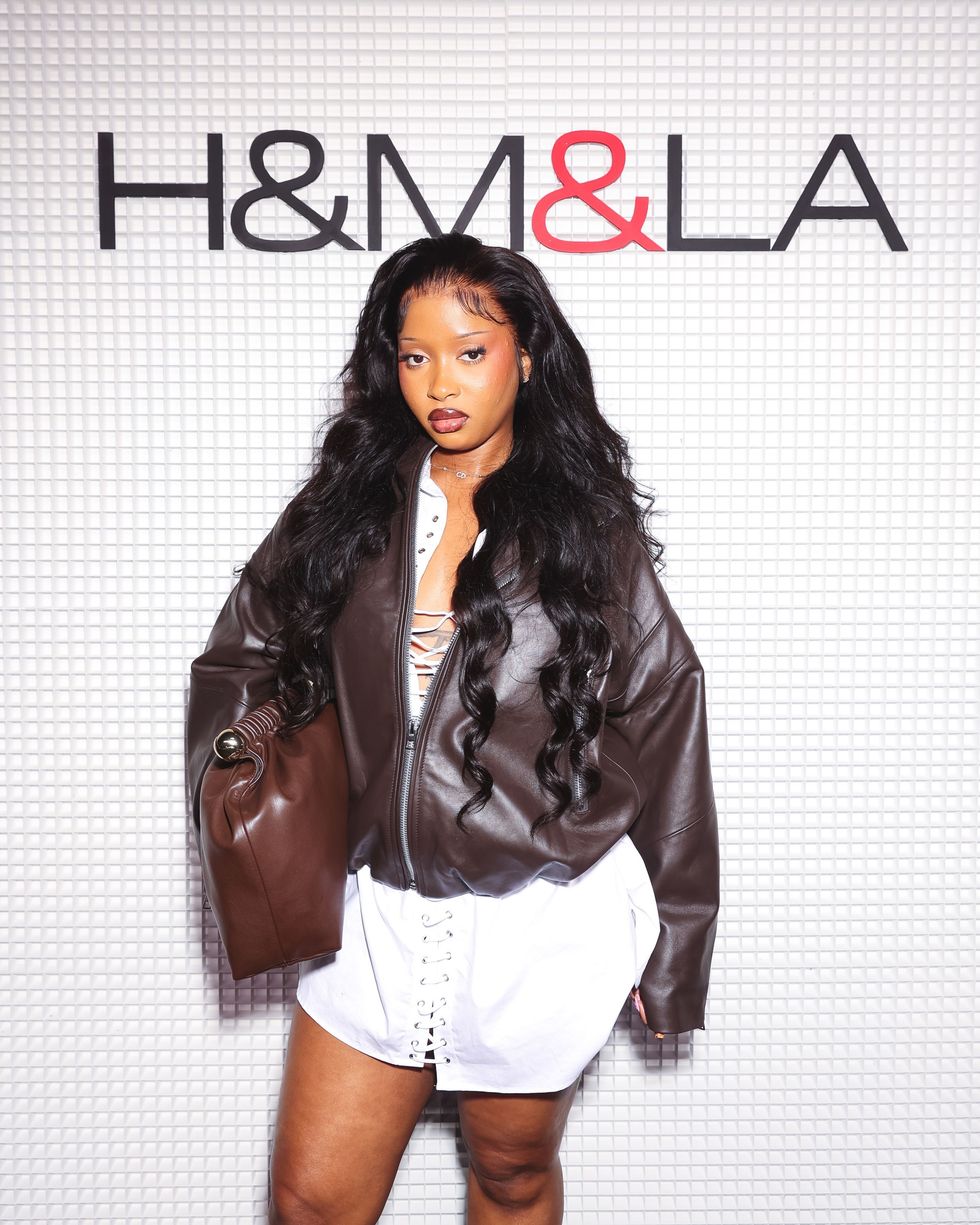
DJ Uncle Waffles
Shutterstock
Uncle Waffles
Her Handle: @unclewaffles_
Her Who's That It Girl: The DJ queen of the global stage, Uncle Waffles turns sound into celebration. We love her for electrifying dance floors and championing African creativity with confidence, rhythm, and undeniable joy.
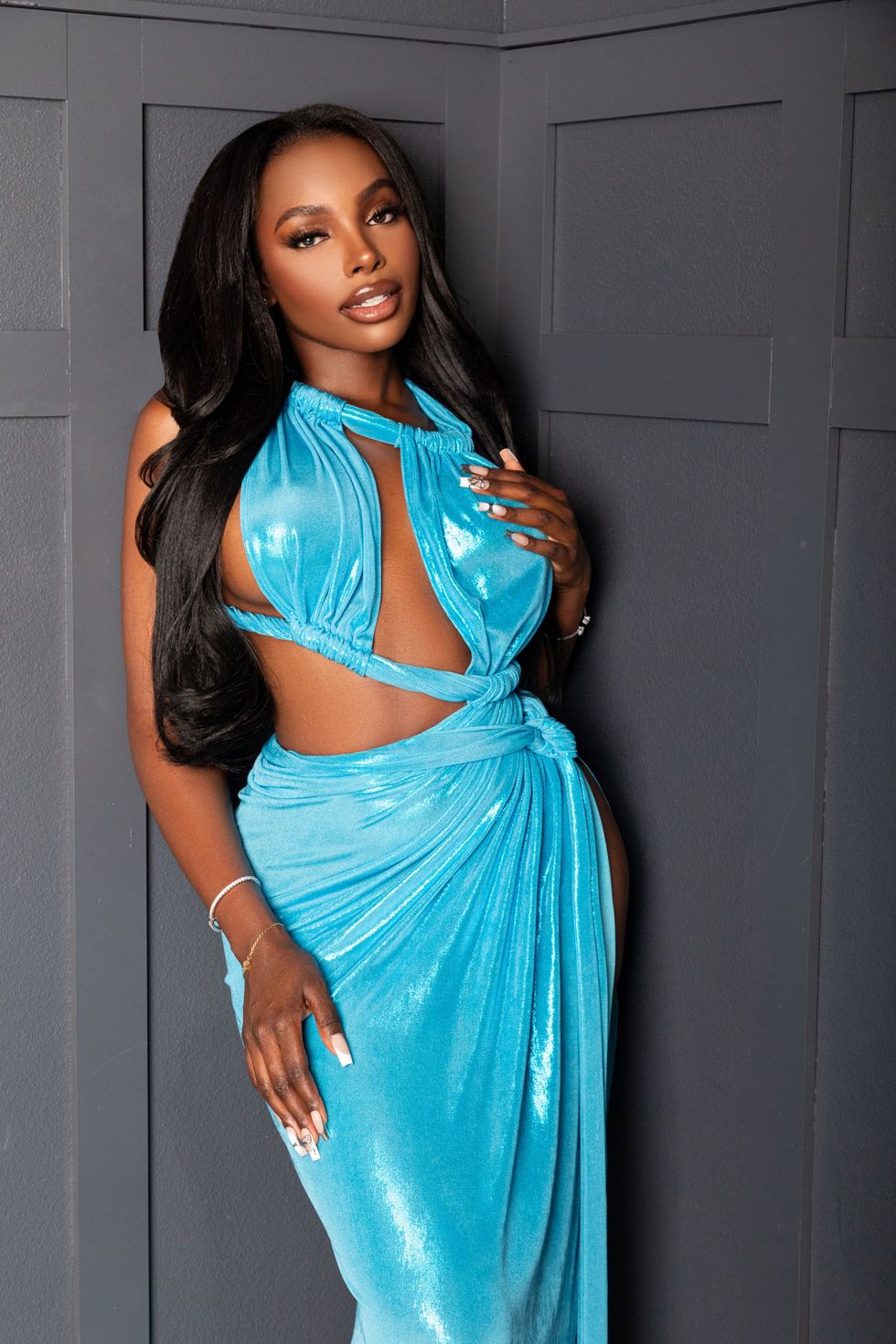
Entrepreneur and Television Personality JaNa Craig
Credit: Susan Madore
JaNa Craig
Her Handle: @janacraig_
Her Title: Creator, Entrepreneur and Television Personality
Who's That It Girl: With creativity that defies convention, JaNa Craig is building a lane all her own in music and production. We celebrate her for reminding women that reinvention is power and authenticity is art.
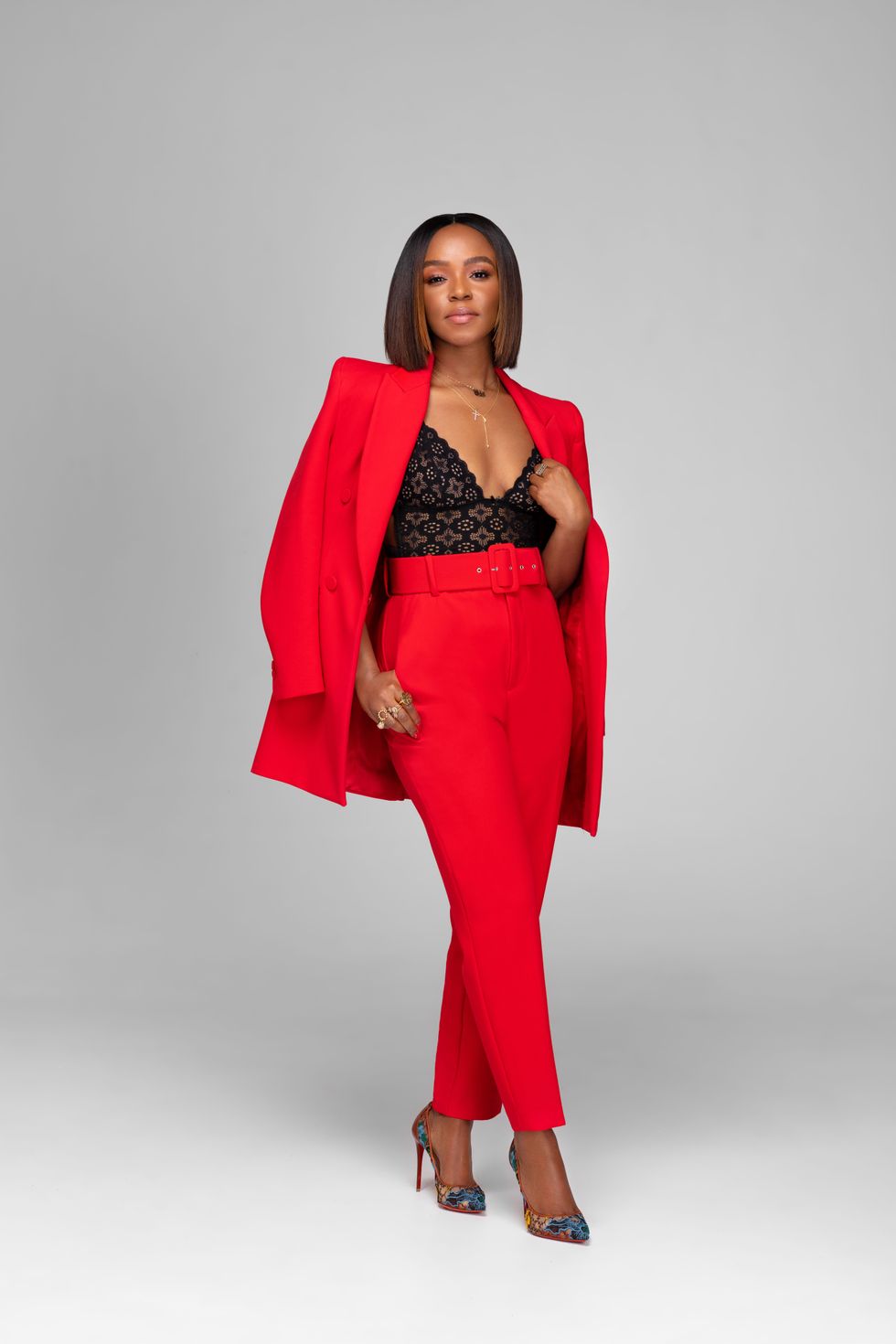
Award-Winning Journalist, Host and Creator Gia Peppers
Credit: Jonavennci Divad - Ravenn Burs
Gia Peppers
Her Handle: @giapeppers
Her Title: Award-Winning Journalist, Host and Creator of Healed Girl Era Podcast
Who's That It Girl: Gia Peppers is an award-winning journalist, host, and podcaster who uses her platforms to tell powerful stories. Through More Than That and Healed Girl Era, she reminds audiences to embrace their voice and value.
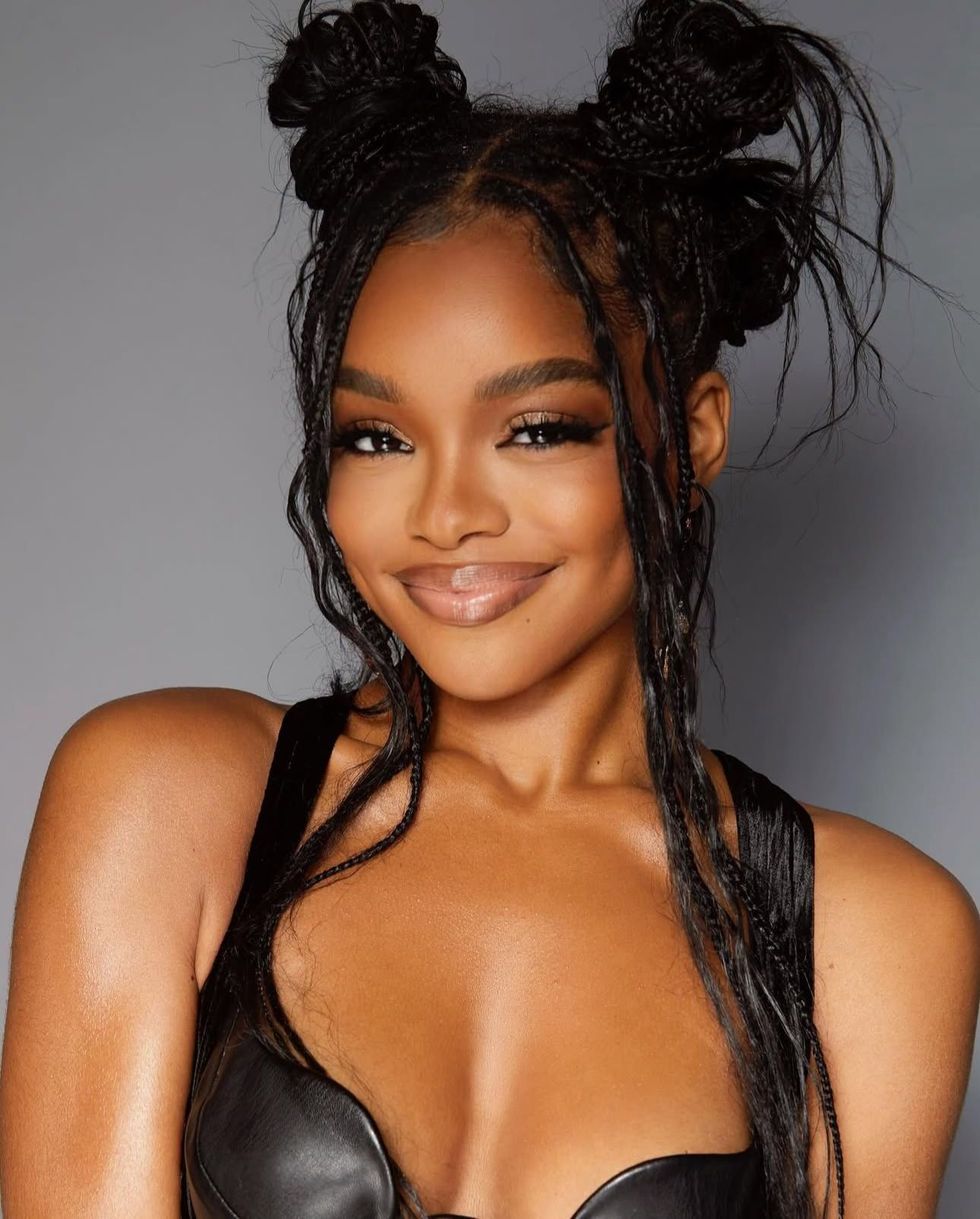
Actress, Executive Producer, and Founder Marsai Martin
Credit: Maya McHenry
Marsai Martin
Her Handle: @marsaimartin
Her Title: Actress, Executive Producer, and Founder of Genius Entertainment and Sai Summer Cookout
Who's That It Girl: Marsai Martin is a creative prodigy with executive energy. We’re inspired by her for producing, directing, and acting with intention, showing young Black girls that leadership starts wherever you decide it does.
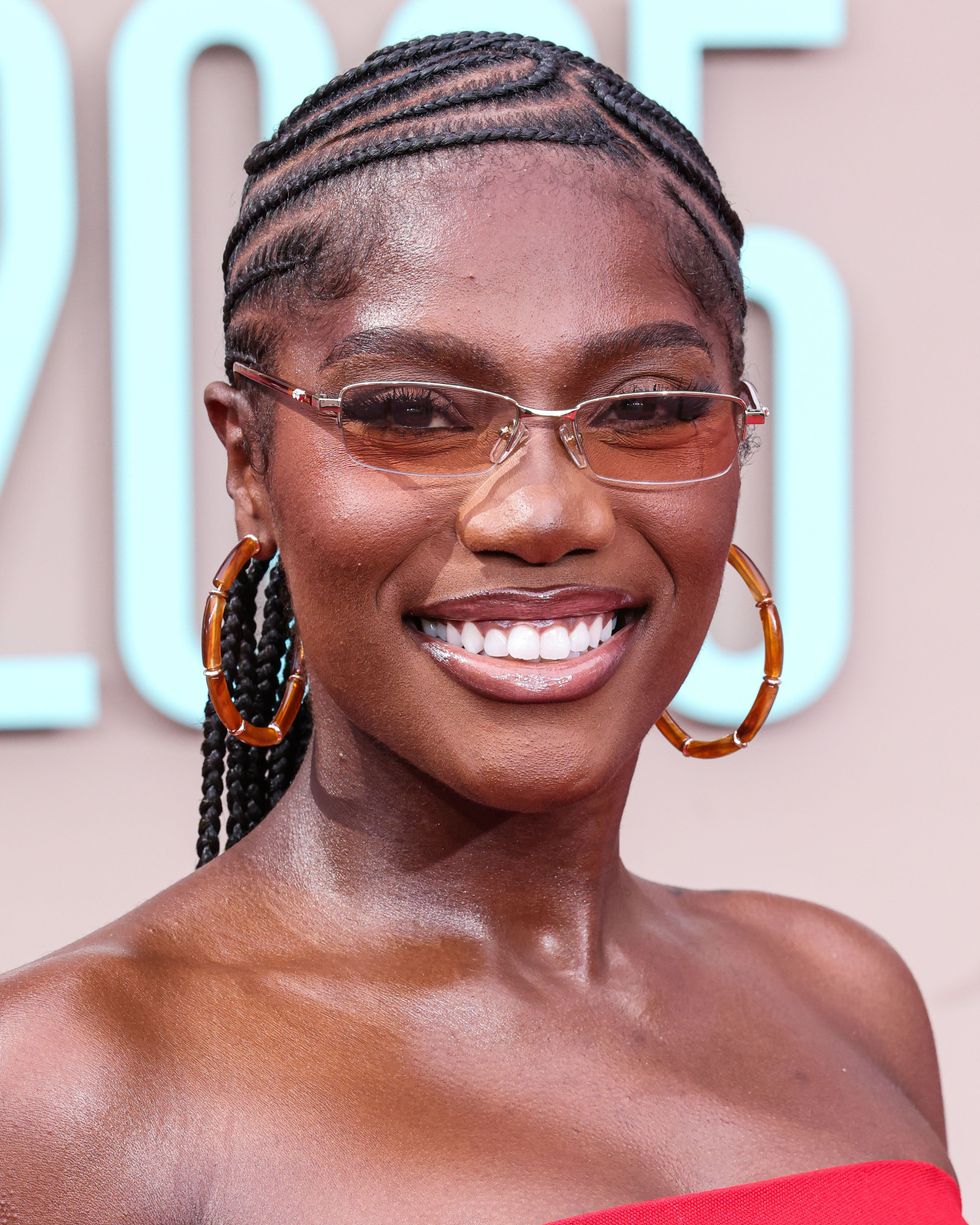
Rapper and Singer Doechii
Shutterstock
Doechii
Her Handle: @doechii
Her Title: Rapper and Singer
Who's That It Girl: A lyrical firestorm and unapologetic visionary, Doechii is shaping the sound of this generation. We honor her for pushing the boundaries of genre, performance, and self-expression with fearless creativity.
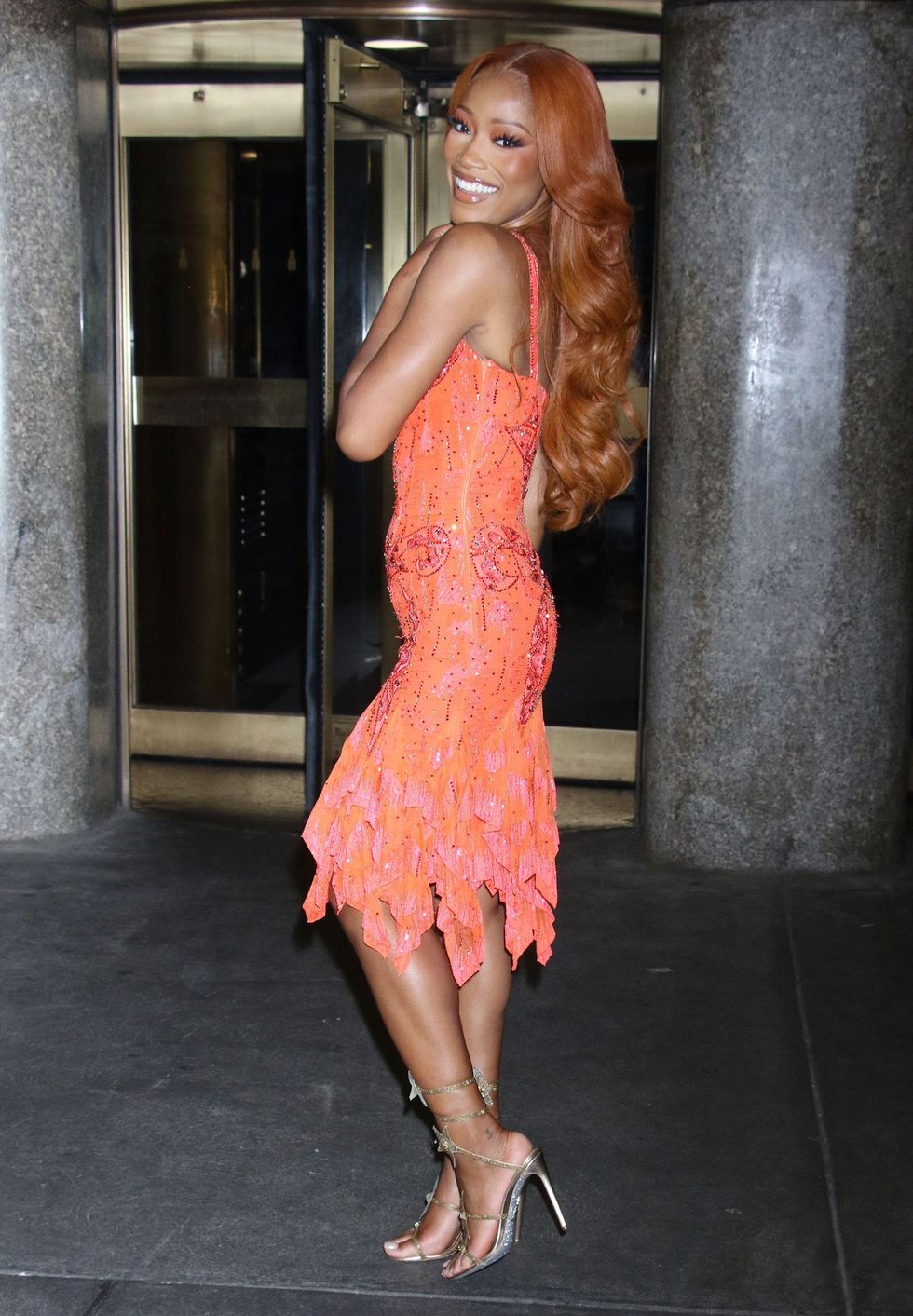
Actress, Singer, Producer and TV Host Keke Palmer
Shutterstock
Keke Palmer
Her Handle: @keke
Her Title: Actress, Singer, Producer and TV Host
Who's That It Girl: An icon of charisma and confidence, Keke Palmer is entertainment royalty. We celebrate her for leading with humor, honesty, and hustle, showing that versatility is her superpower and evolution her legacy.
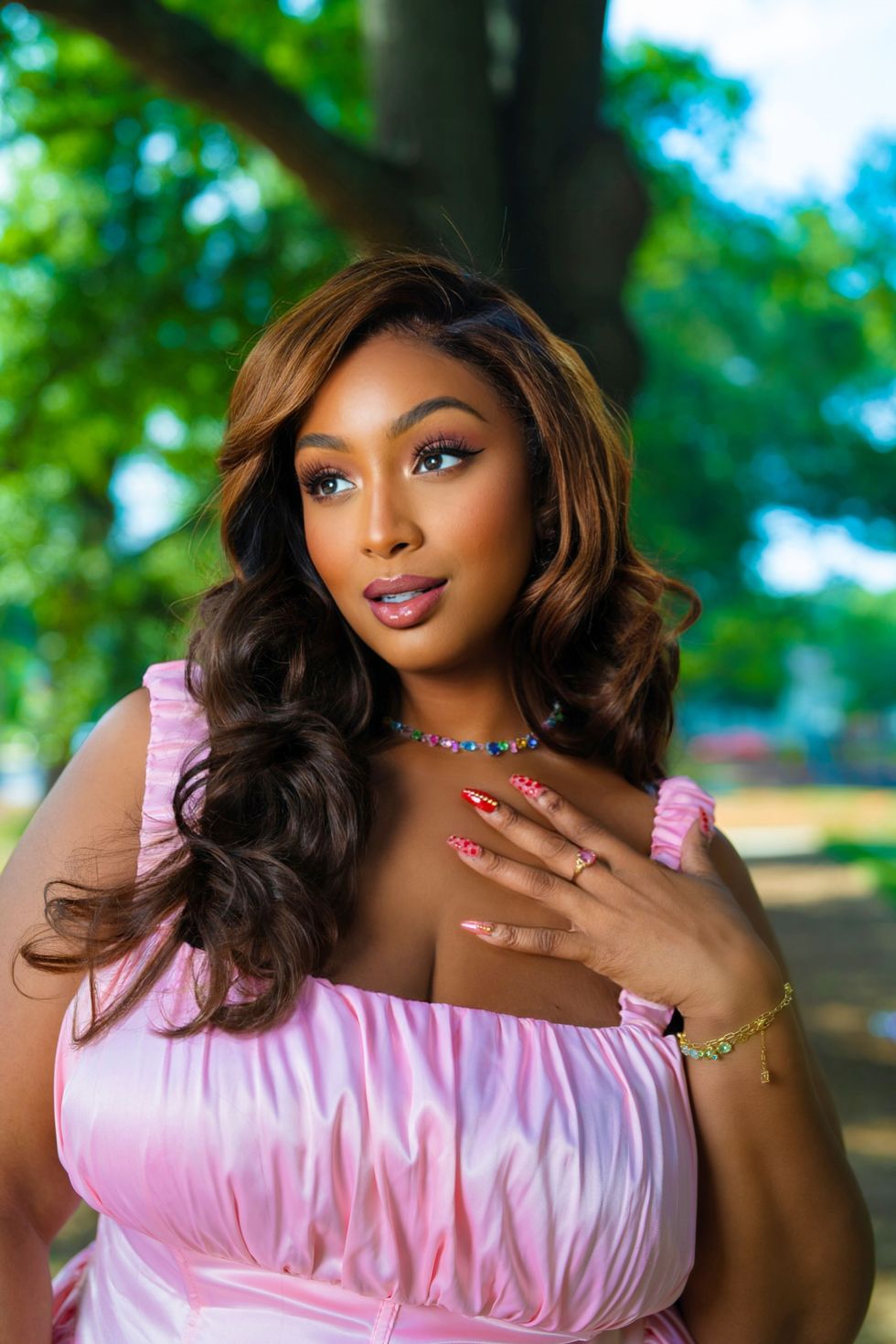
Actress, Model, Singer, Designer, Content Creator and Entrepreneur Nzinga Imani
Credit: Shae DeWaal
Nzinga Imani
Her Handle: @nzingaimani
Her Title: Actress, Model, Singer, Designer, Content Creator and Entrepreneur
Who's That It Girl: We love Nzinga Imani for her bold authenticity and on-screen presence. As an actress, model, and entrepreneur, she’s redefining beauty and representation in entertainment.
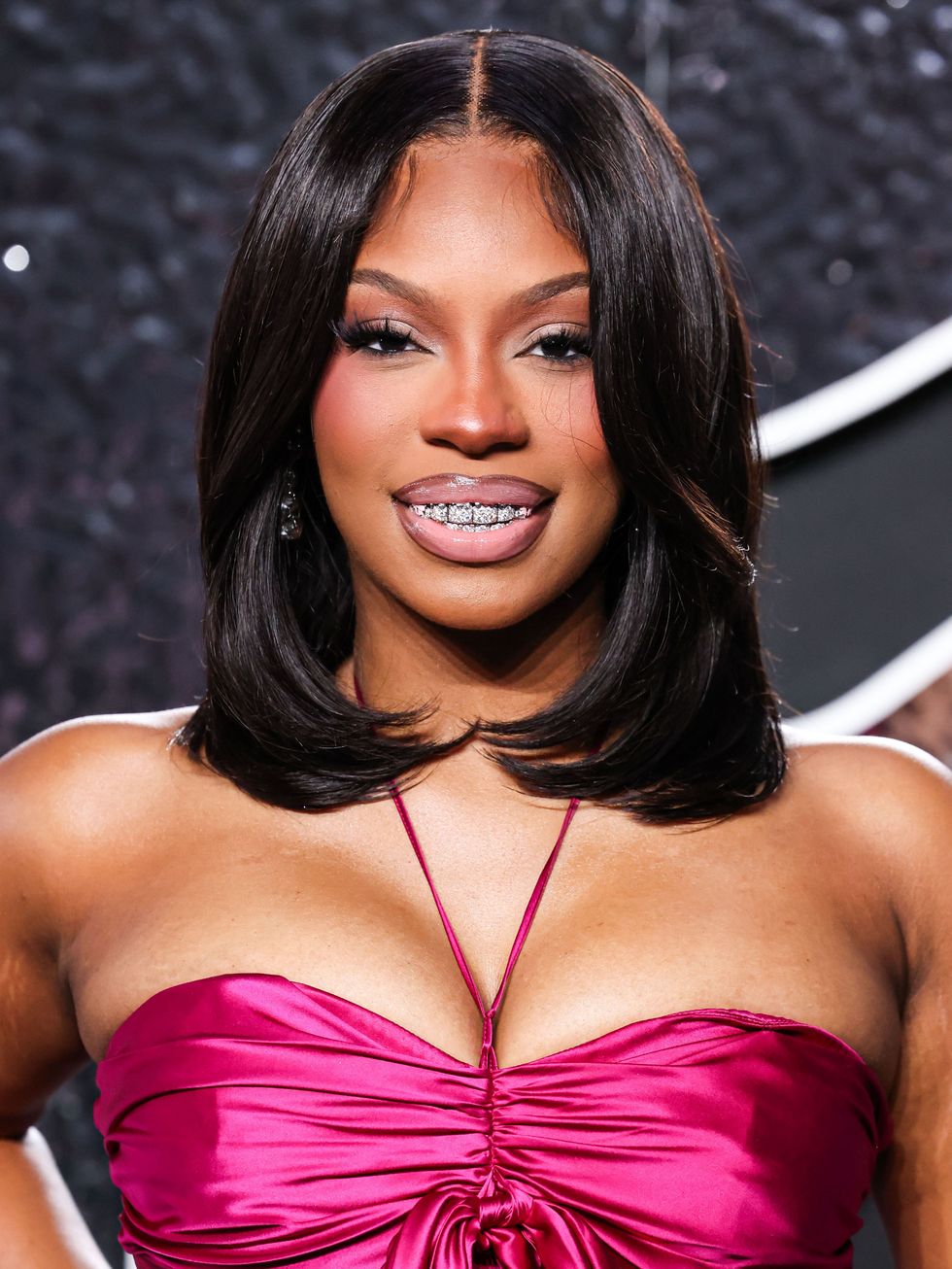
Rapper and Singer Monaleo
Shutterstock
Monaleo
Her Handle: @themonaleo
Her Title: Rapper and Singer
Who's That It Girl: Monaleo’s voice hits with power and purpose. We honor her for pairing confidence with vulnerability, turning her truth into anthems that inspire women to heal loudly and live boldly.
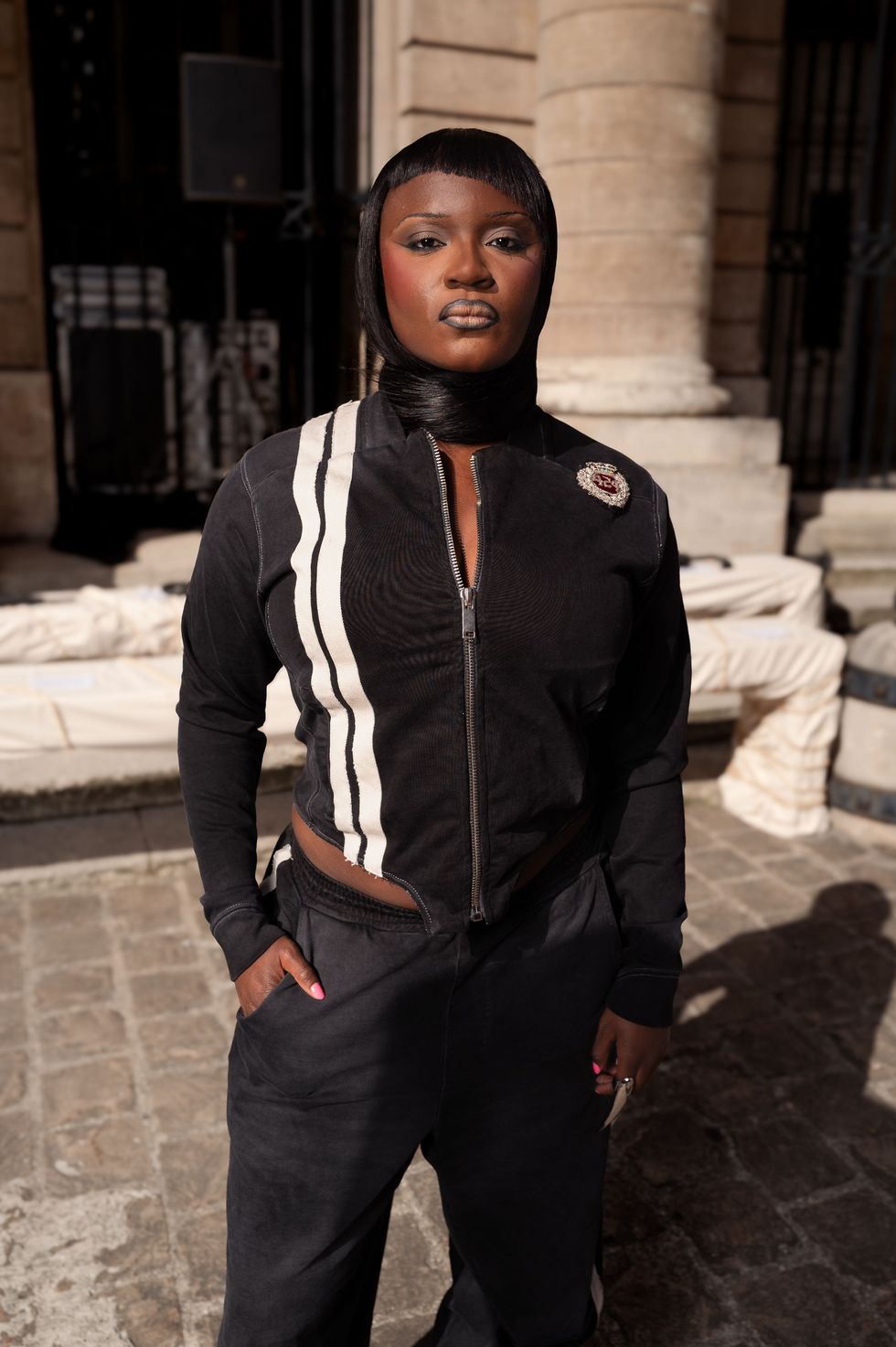
Singer and Songwriter Amaarae
Shutterstock
Amaarae
Her Handle: @amaarae
Her Title: Singer and Songwriter
Who's That It Girl: With a sound that bends genres and a style that breaks rules, Amaarae is one of music’s most daring voices. We celebrate her for pushing boundaries, owning her individuality, and amplifying the power of Afro-fusion on a global stage.
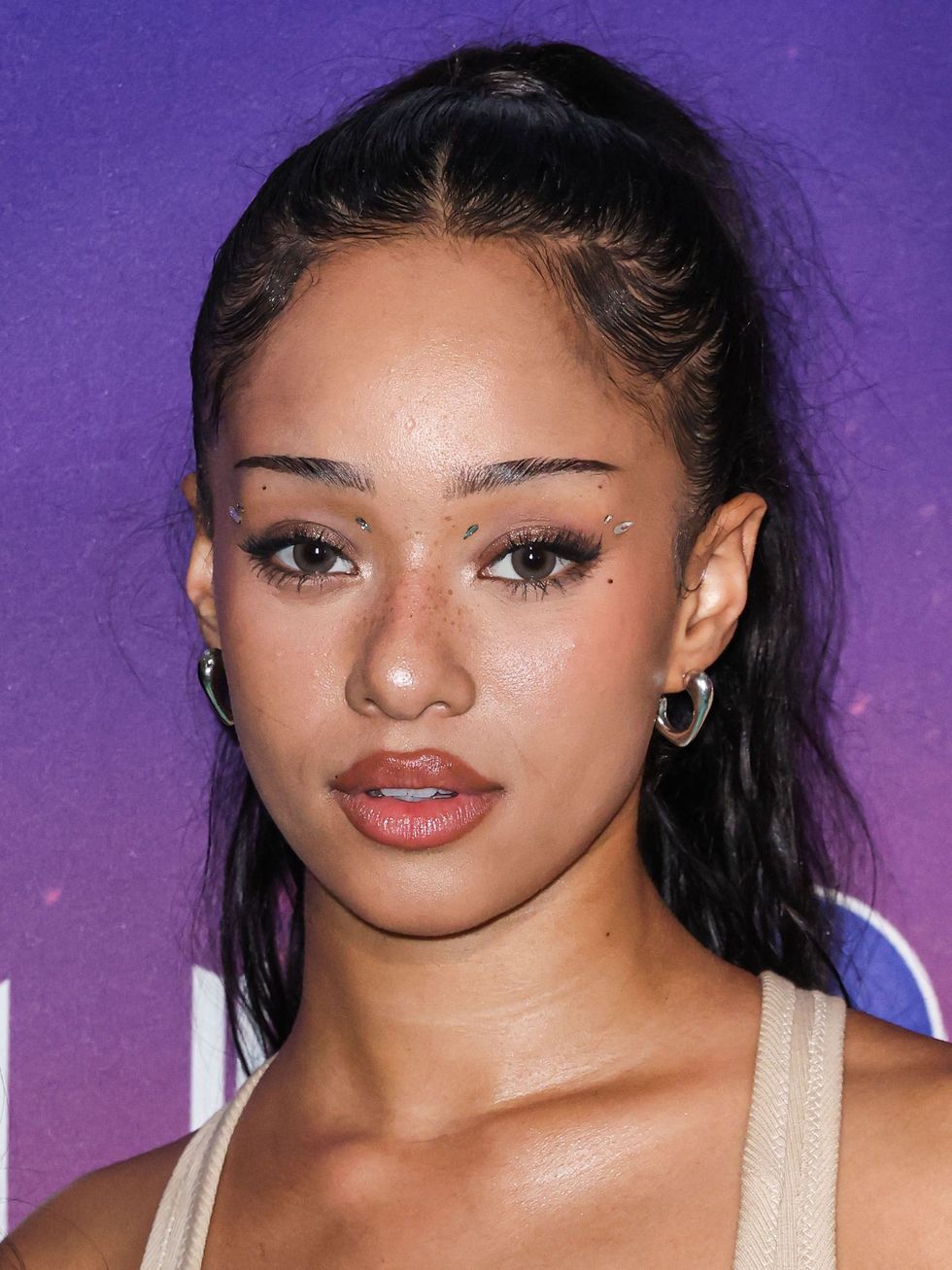
Singer, KATSEYE Monan Bannerman
Shutterstock
Monan Bannerman
Her Handle: @meretmanon
Her Title: Singer, KATSEYE
Who's That It Girl: As a member of KATSEYE, Monan merges style, grace, and global influence. We celebrate her for bringing cultural depth and individuality to the next generation of pop icons.
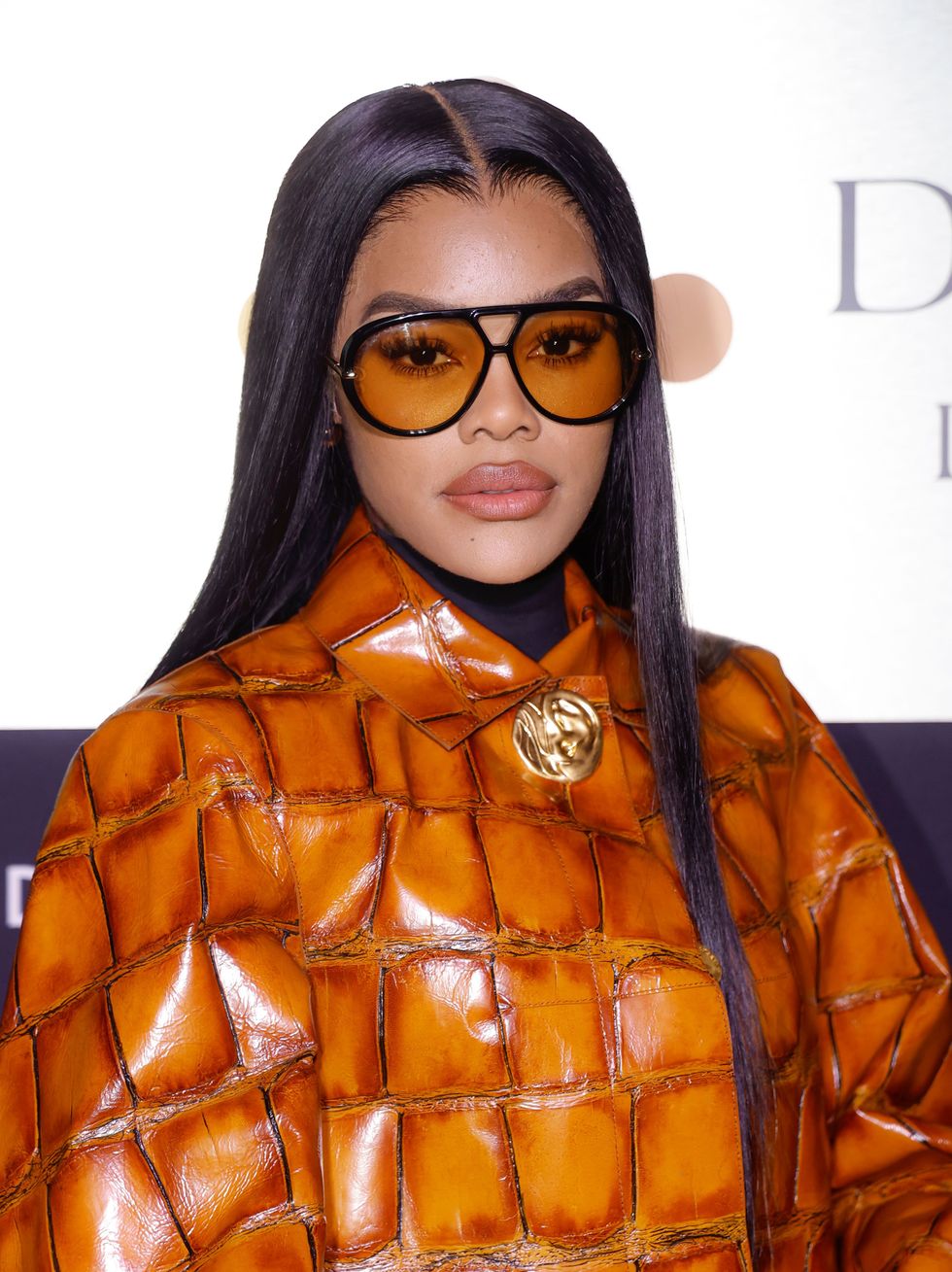
Singer, Actress, Creative Director, and Choreographer Teyana Taylor
Shutterstock
Teyana Taylor
Her Handle: @teyanataylor
Her Title: Singer, Actress, Creative Director, and Choreographer
Who's That It Girl: Teyana Taylor is the embodiment of artistry, singer, choreographer, director, designer. We honor her for transforming every creative avenue she touches into a masterpiece of movement, emotion, and empowerment.

Singer, Songwriter and Producer Laila!
Courtesy
Laila!
Her Handle: @prodlaila
Her Title: Singer, Songwriter, and Producer
Who's That It Girl: Laila is the creative force whose sound pulses with honesty and energy. We honor her for capturing emotion through production and storytelling, inspiring a new era of music that feels intimate yet universal.
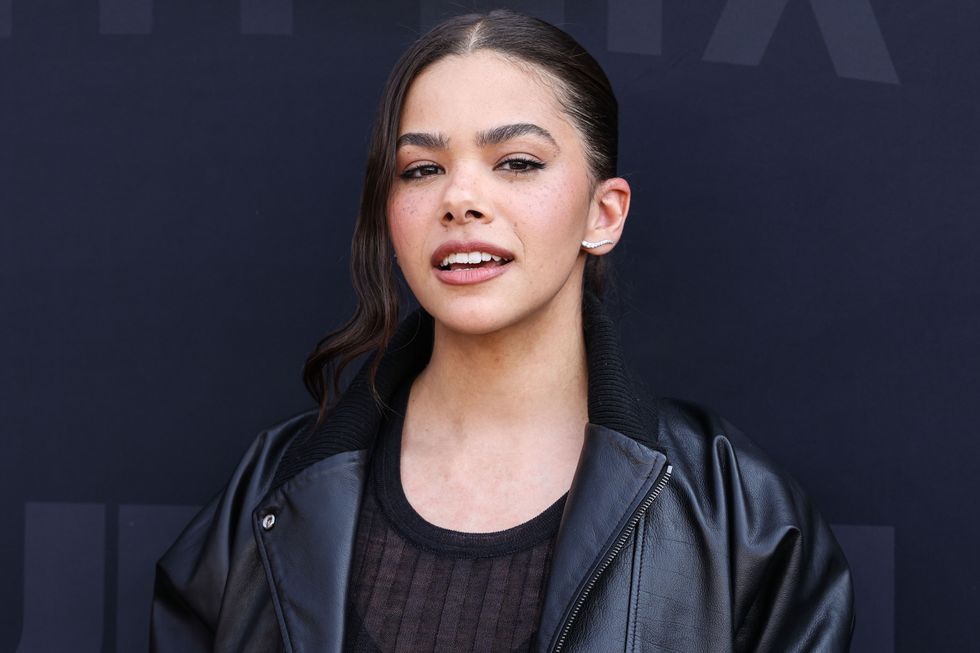
Actress Antonia Gentry
Shutterstock
Antonia Gentry
Her Handle: @_antoniagentry_
Her Title: Actress
Who's That It Girl: With talent that transcends screens, Antonia Gentry brings raw emotion and grace to every performance. We honor her for reminding us that vulnerability is strength and that storytelling can be both healing and revolutionary.
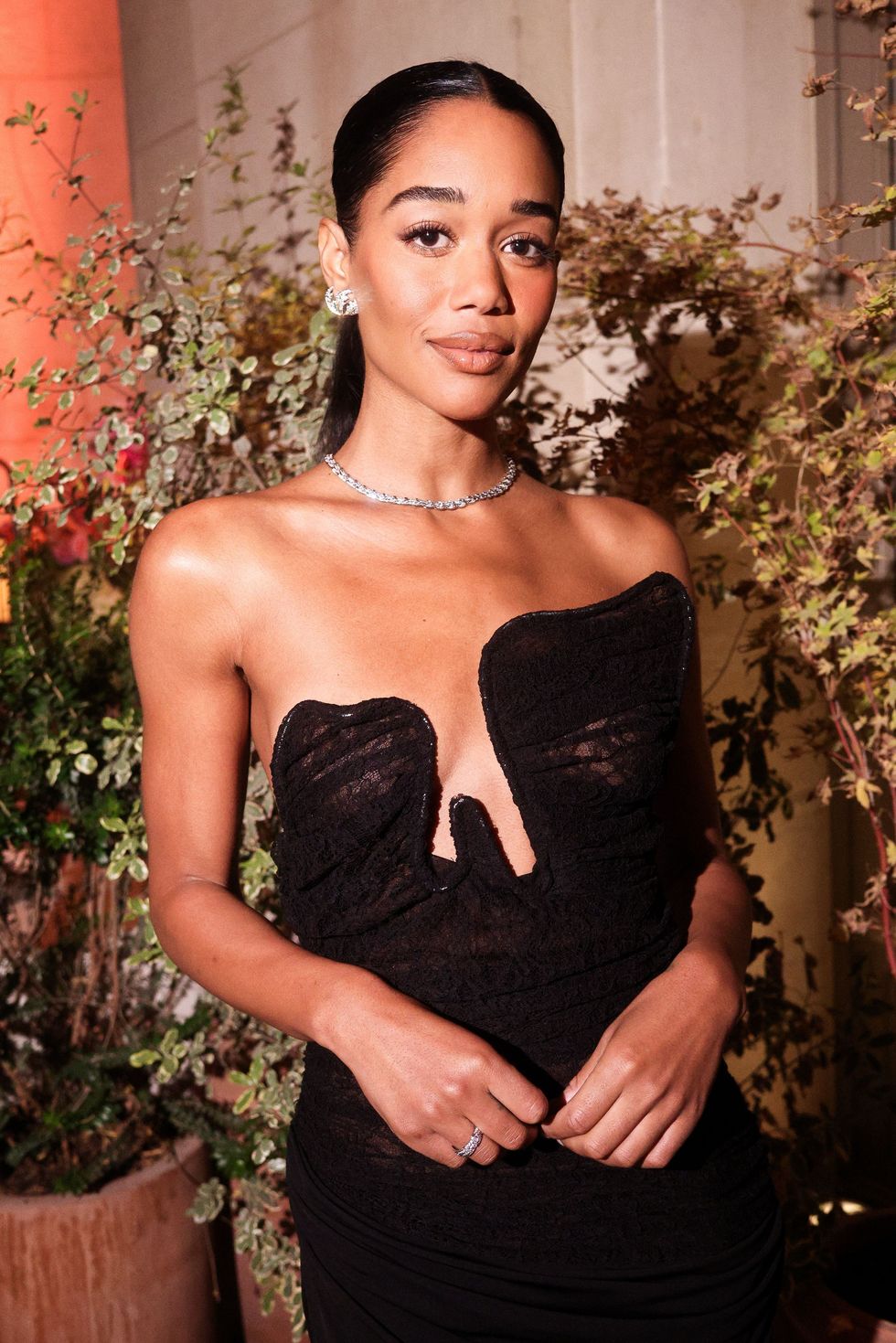
Actress and Model Laura Harrier
Shutterstock
Laura Harrier
Her Handle: @lauraharrier
Her Title: Actress and Model
Who's That It Girl: Effortlessly chic and profoundly grounded, Laura Harrier is redefining Hollywood grace. We celebrate her for using her platform to champion representation and for proving that elegance and activism can coexist beautifully.
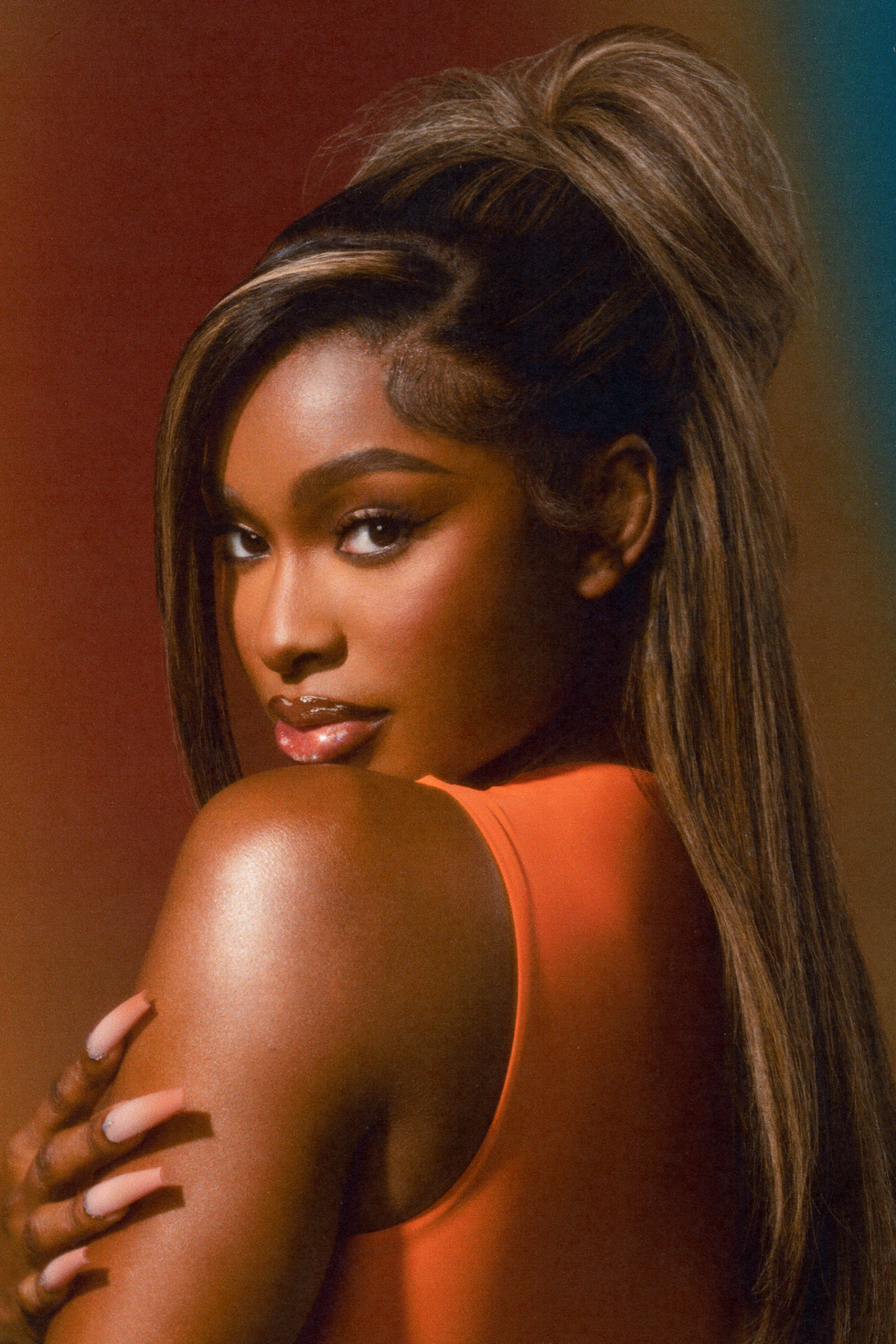
R&B Singer/Songwriter, Actress Coco Jones
Courtesy
Coco Jones
Her Handle: @cocojones
Her Title: R&B Singer/Songwriter, Actress
Who's That It Girl: Coco Jones is a Grammy-winning R&B breakout who captivates with her timeless artistry and soulful voice. She also stars as Hilary Banks in the Bel-Air reboot and recently wrapped an upcoming romantic comedy That’s Her.
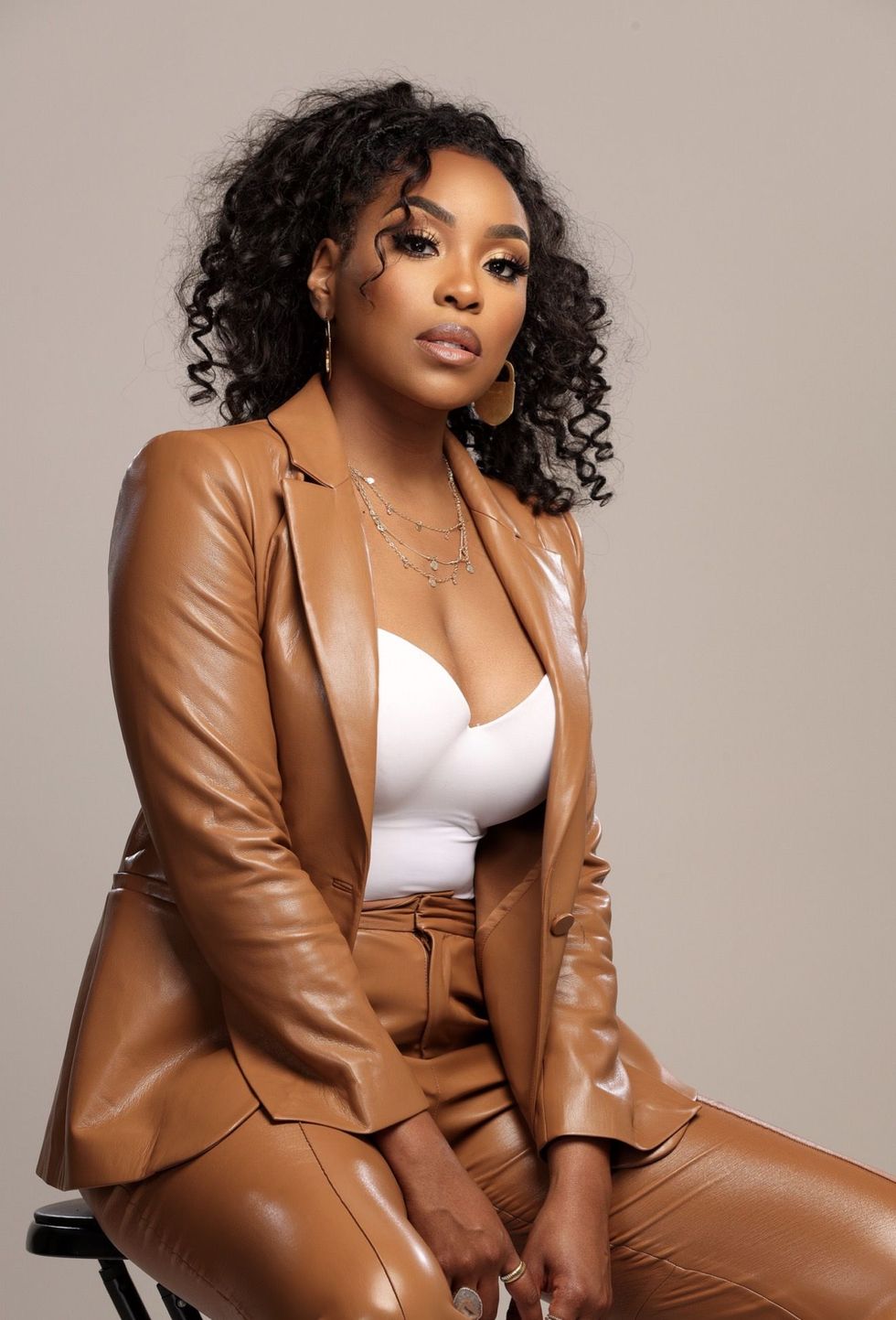
Entrepreneur, Media Personality and Philanthropist Lauren Speed-Hamilton
Courtesy
Lauren Speed-Hamilton
Her Handle: @need4lspeed
Her Title: Entrepreneur, Media Personality and Philanthropist
Who's That It Girl: Lauren Speed-Hamilton turned her Love Is Blind journey into a masterclass in purpose-driven storytelling. We love her for inspiring authenticity in love, media, and entrepreneurship, building connection where vulnerability meets vision.
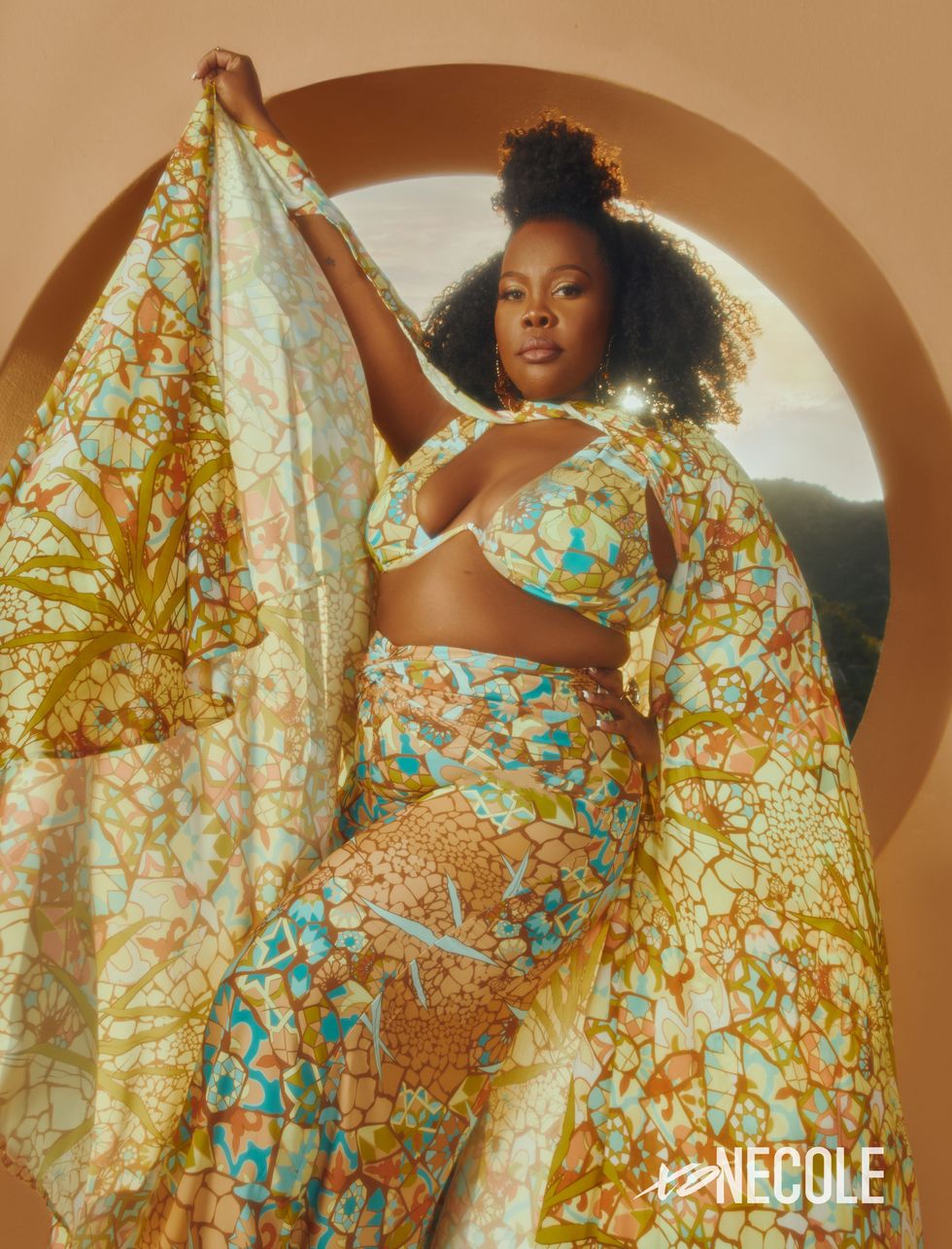
Actress and Singer Amber Riley
Credit: xoNecole
Amber Riley
Her Handle: @msamberpriley
Her Title: Actress and Singer
Who's That It Girl: Amber Riley’s voice is pure power, soulful, spiritual, and unforgettable. We celebrate her for using her artistry to uplift others, redefining what resilience and radiance look like in entertainment.
Joy Woods
Her Handle: @joynwoods
Her Title: Actress
Who's That It Girl: Joy Woods’ name says it all, joy radiates through every note she sings. We’re inspired by her Broadway brilliance and her commitment to showing that Black women’s voices are boundless and breathtaking.
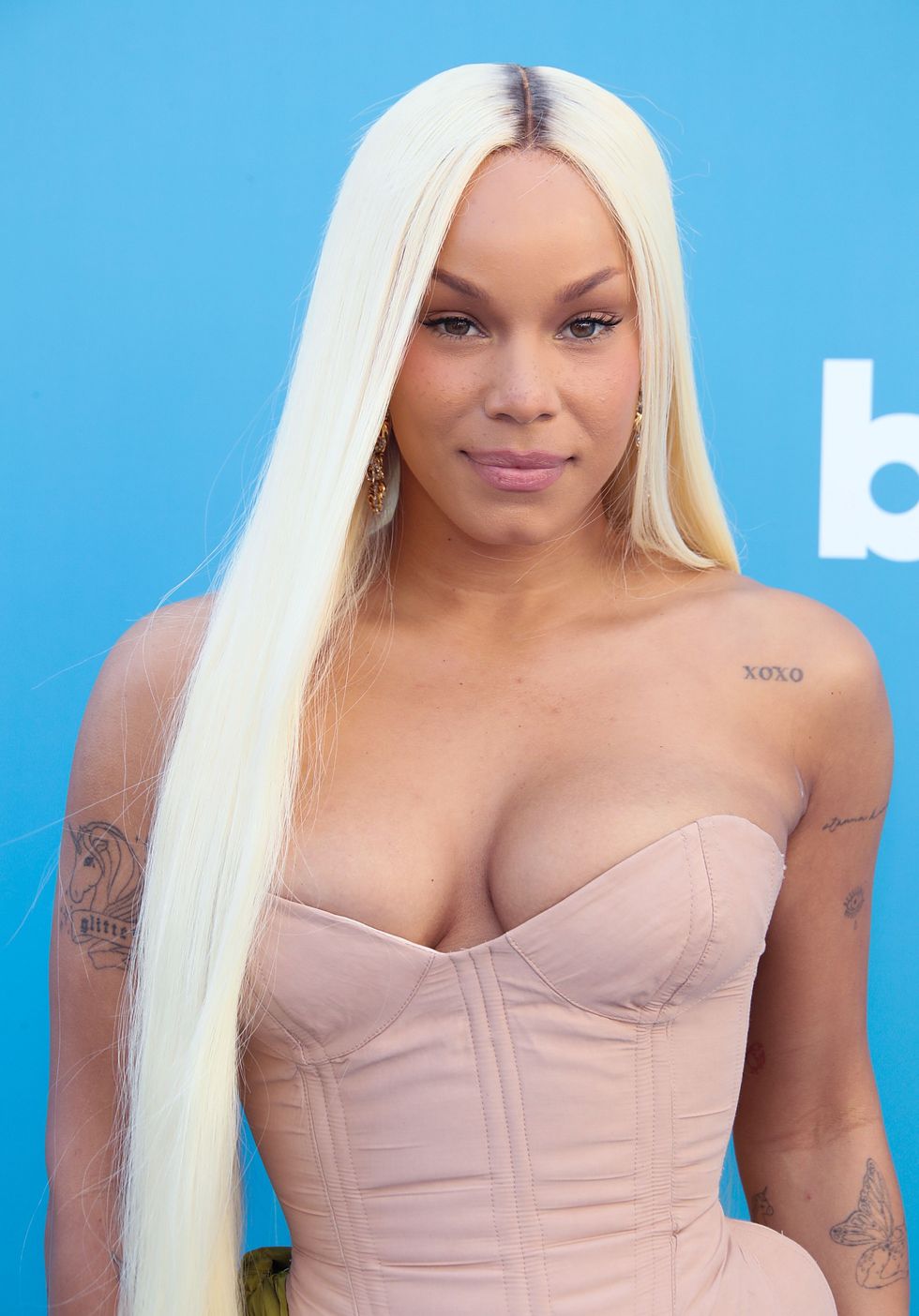
Country Singer, Songwriter Tanner Adell
Shutterstock
Tanner Adell
Her Handle: @tanneradell
Her Title: Country Singer, Songwriter
Who's That It Girl: With a voice as bold as her vision, Tanner Adell is redefining country music with style and soul. We celebrate her for breaking barriers, blending cultures, and creating a sound that’s unapologetically her own.
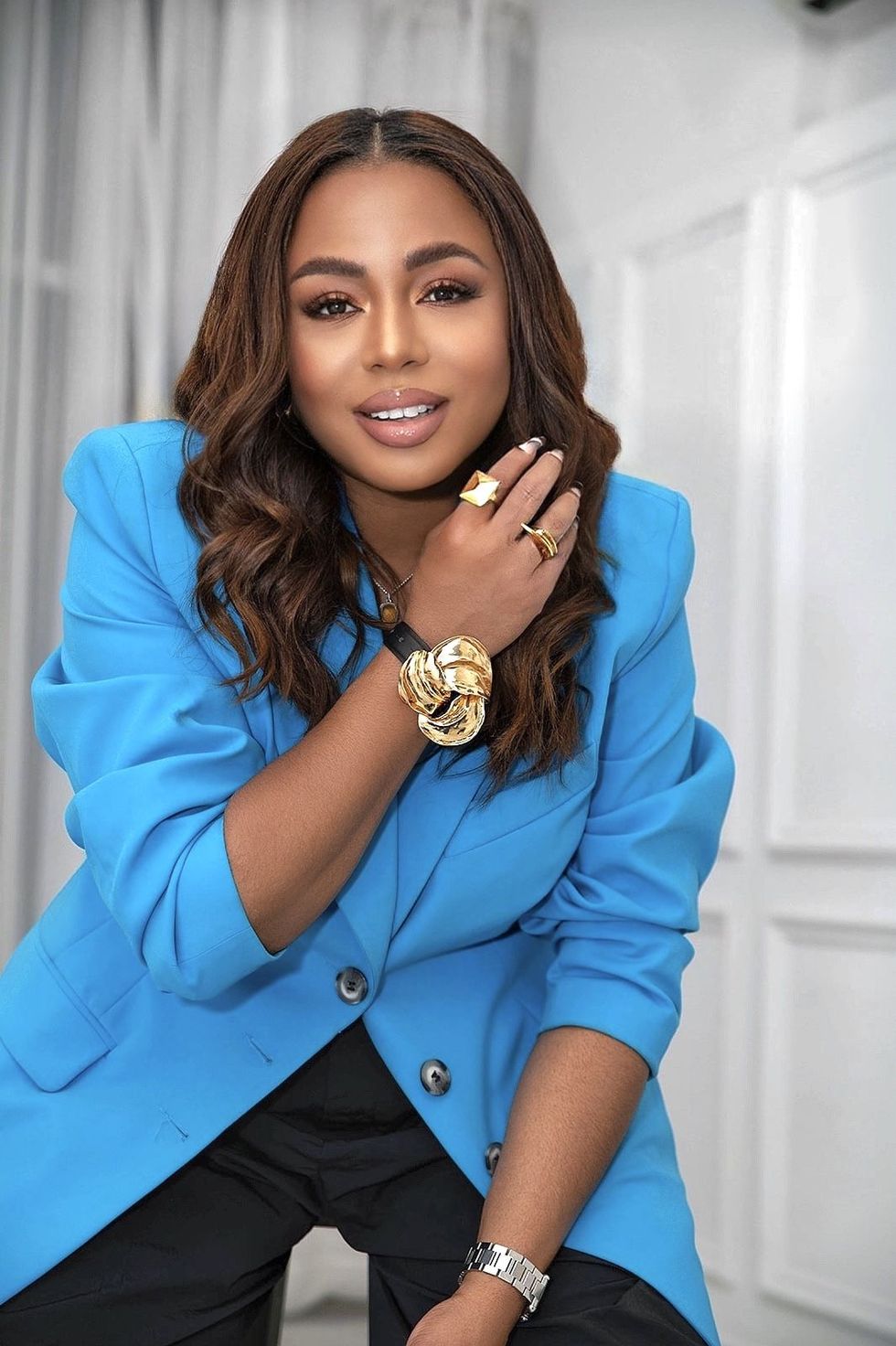
Producer, Host and Media Maven Kéla Walker
Courtesy
Kéla Walker
Her Handle: @KelaWalker
Her Title: Producer, Host and Media Maven
Who's That It Girl: Kéla Walker is a 7x Emmy-nominated producer, host, and digital tastemaker, a modern-day media maven merging television storytelling with contemporary influence. As the founder of Walker Media Group, she curates aspirational lifestyle content anchored in style, culture, and substance. From red carpets to real life, Kéla brings a distinct point of view that bridges legacy media and the digital landscape.
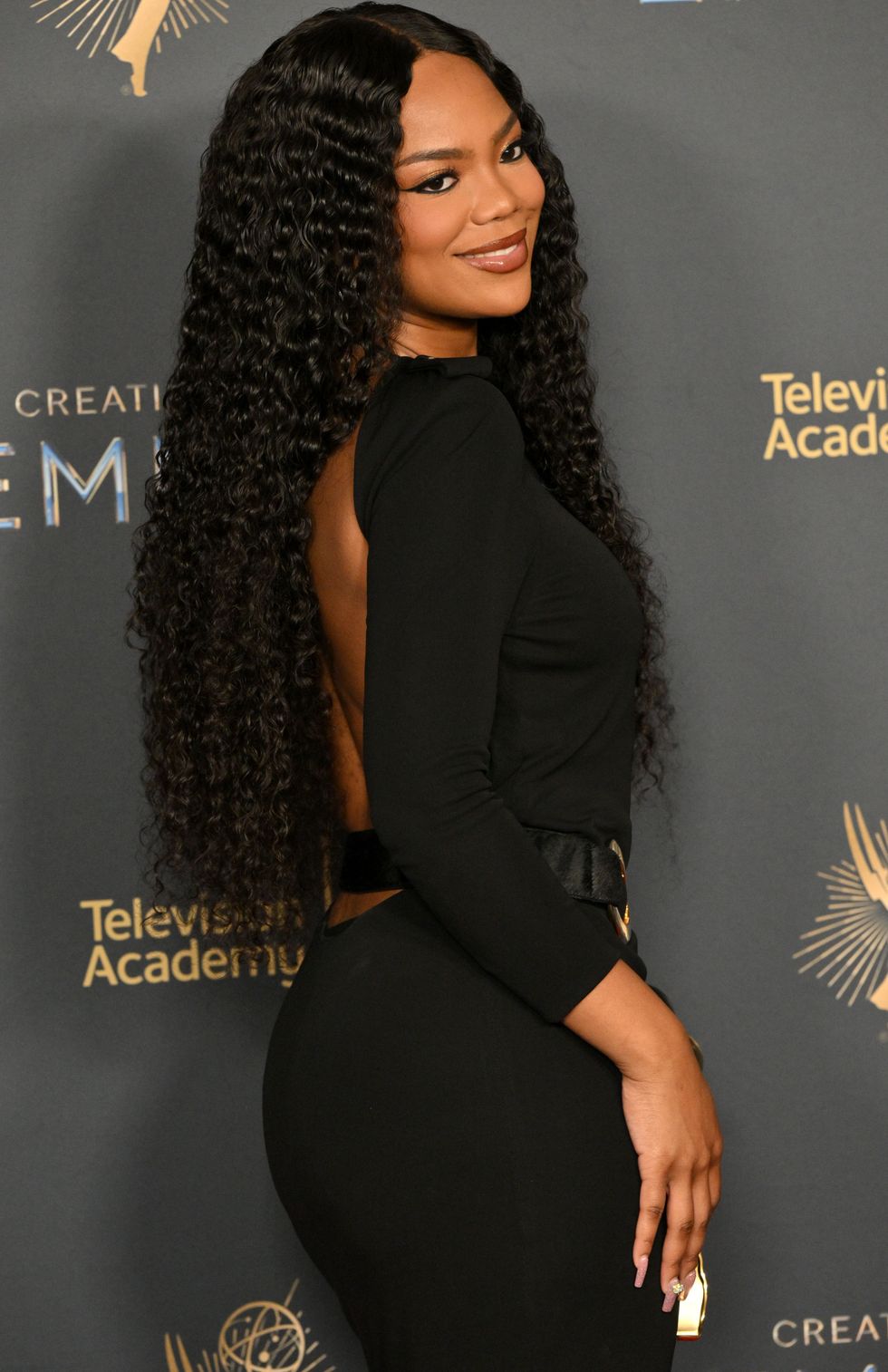
TV Personality Riley Burruss
Shutterstock
Riley Burruss
Her Handle: @rileyburruss
Her Title: TV Personality
Who's That It Girl: We celebrate Riley Burruss as a rising creative and storyteller forging her own space in entertainment. Fresh out of NYU with a degree in music business, she’s building momentum through Next Gen NYC and her podcast The Burruss Banter, all while exploring a future in entertainment law.
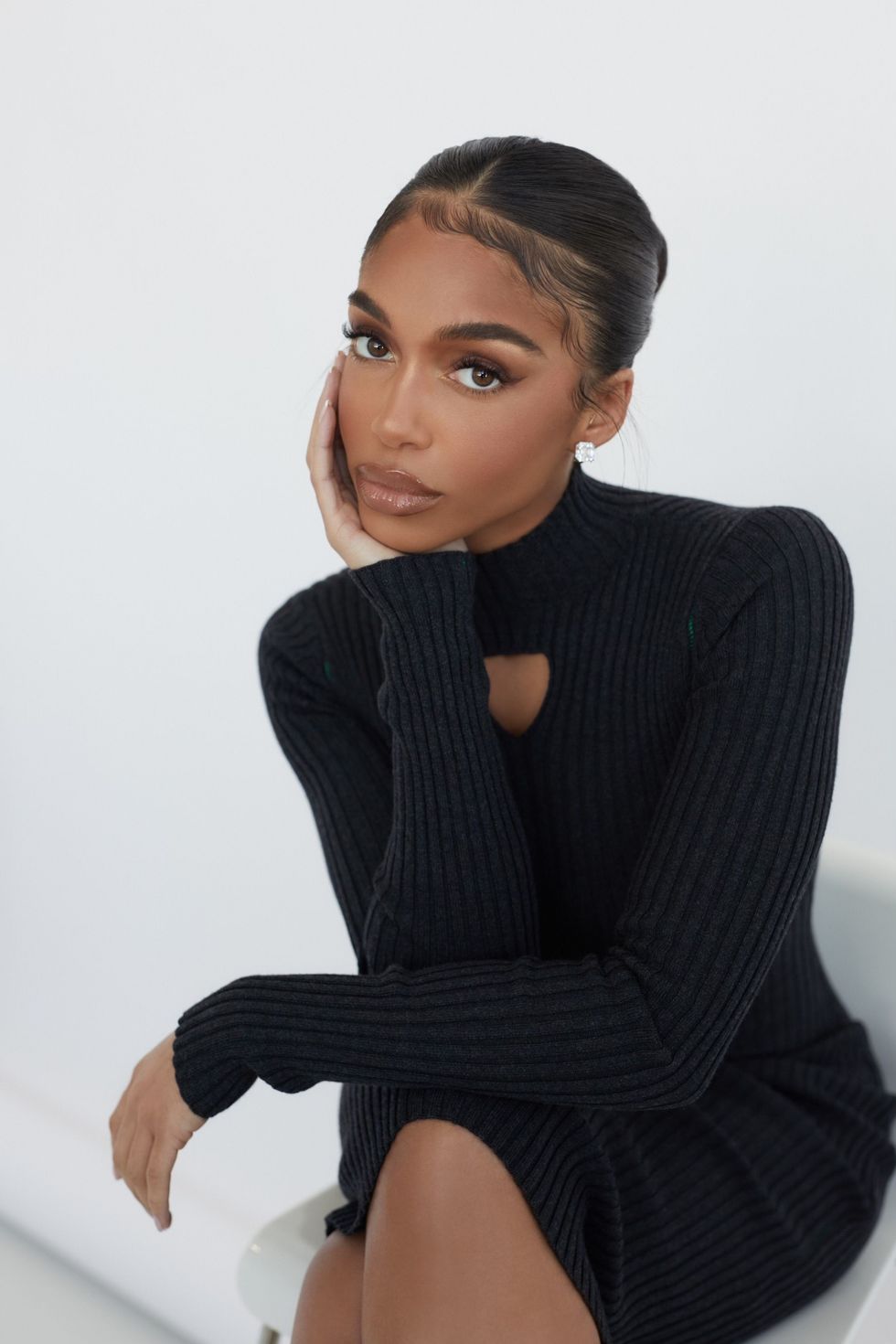
Entrepreneur, Actor, Model, Style Icon and Entrepreneur Lori Harvey
Credit:
Lori Harvey
Her Handle: @loriharvey
Her Title: Beauty Entrepreneur, Actor, Model, Style Icon and Entrepreneur
Who's That It Girl: Lori Harvey embodies modern femininity and independence. We celebrate her for turning self-love into legacy and for inspiring women to walk confidently in their own power.
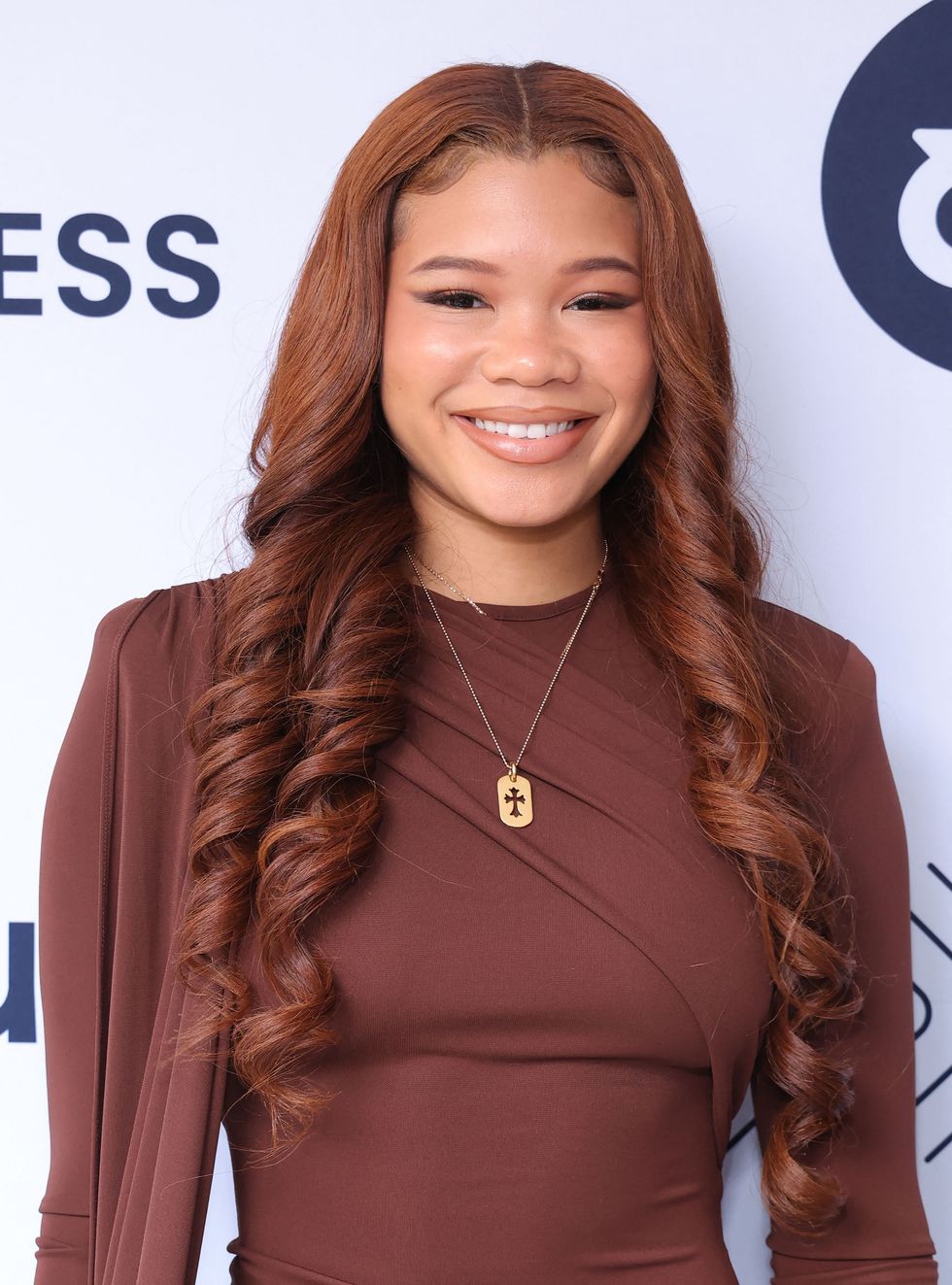
Actress Storm Reid
Shutterstock
Storm Reid
Her Handle: @stormreid
Her Title: Actress
Who's That It Girl: Storm Reid radiates brilliance far beyond her years. We love her for bringing compassion, creativity, and courage to every role, a true beacon for young women dreaming of changing the world through art.
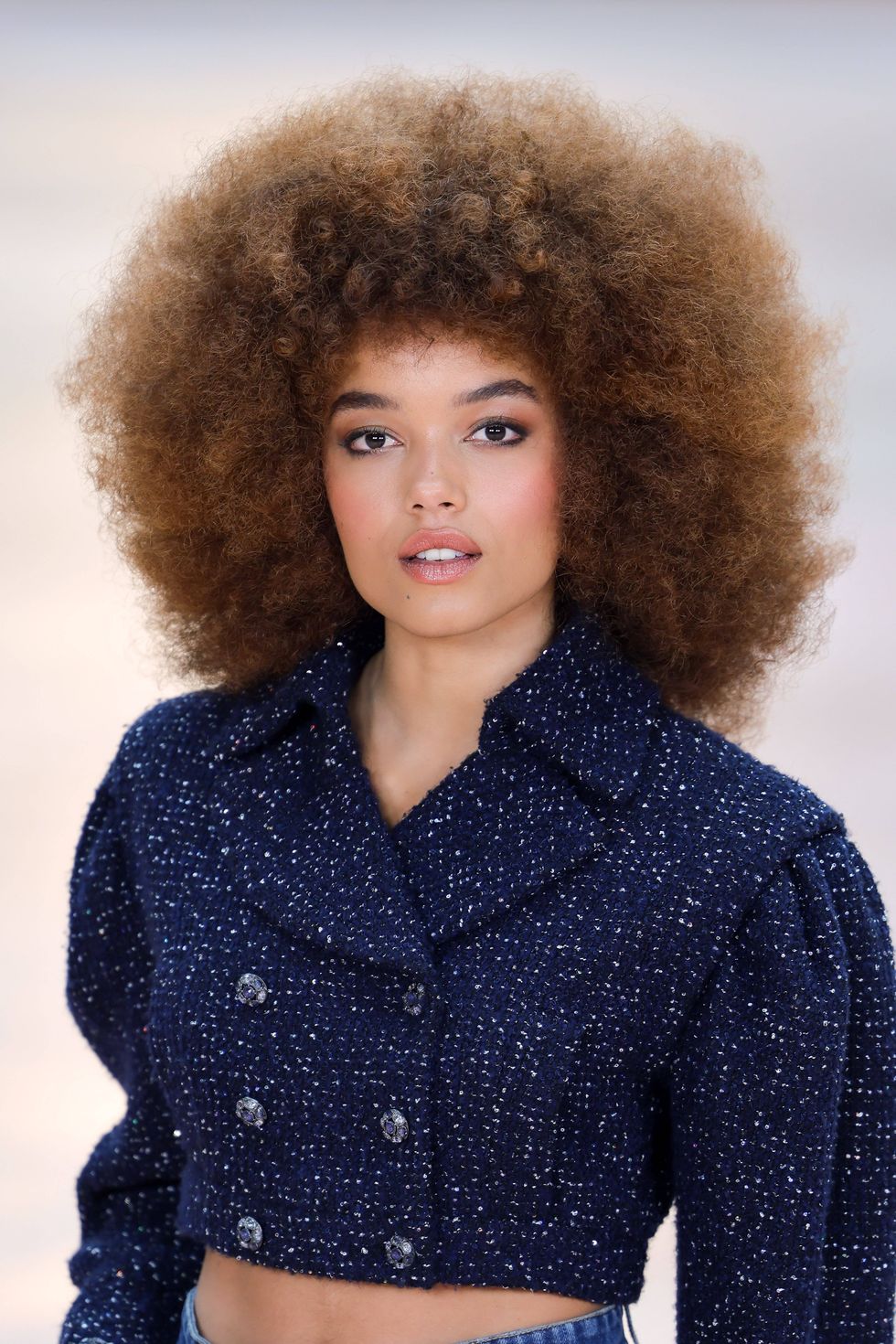
Actress Whitney Peak
Shutterstock
Whitney Peak
Her Handle: @whitneypeak
Her Title: Actress
Who's That It Girl: Whitney Peak exudes quiet confidence and magnetic charm. We celebrate her for redefining modern cool and for reminding young women that authenticity is the most timeless form of beauty.
Tap into the full It Girl 100 Class of 2025 and meet all the women shaping the culture this year and beyond. See the full list here.
Featured image by xoStaff





